
Face mask rules in every state
Face mask rules in every state
Following months of stay-at-home orders and business shutdowns due to the novel coronavirus, various regions in the United States on May 1 began the first phase of reopening. By May 20, restrictions had begun to lift in all states. But just a month later, Texas and Florida reversed course on their reopenings as COVID-19 cases skyrocketed. July 19 represented the fifth consecutive day that Florida reported more than 10,000 new COVID-19 cases daily. Amid these bleak numbers, many businesses and governing bodies across the U.S. are reconsidering rules for safe reopening.
At the center of this controversy is a debate over whether to mandate face coverings. The CDC recommends the use of face masks or cloth coverings in public places in order to help slow the spread of COVID-19; and a Texas A&M University study released June 12 found that not wearing a face mask dramatically increased the odds of spreading COVID-19. Despite these findings, a nationwide decision has not been made and rule-setting has been left up to individual states, counties, or cities.
In Georgia, Gov. Brian Kemp on July 16 sued in order to prevent Atlanta's Mayor Keisha Lance Bottoms from requiring city residents to wear face masks in public to help stop the spread of COVID-19. Meanwhile, President Trump on July 20 tweeted a photo of himself wearing a mask, claiming "There is nobody more patriotic than me, your favorite President!" Also in July, Facebook suspended an anti-mask group with 9,000 members for disseminating debunked claims about the efficacy of masks and their ill effects on mental health and personal freedoms.
Stacker scoured various state government reports and reputable news sources to pull together the most up-to-date information about face mask rules in all 50 states. All information is current as of July 22, 2020, and represents a number of changes in the last month alone.
Read on to find out whether or not face coverings are just a recommendation or mandate where you live.
You may also like: States receiving the most PPE from the federal government
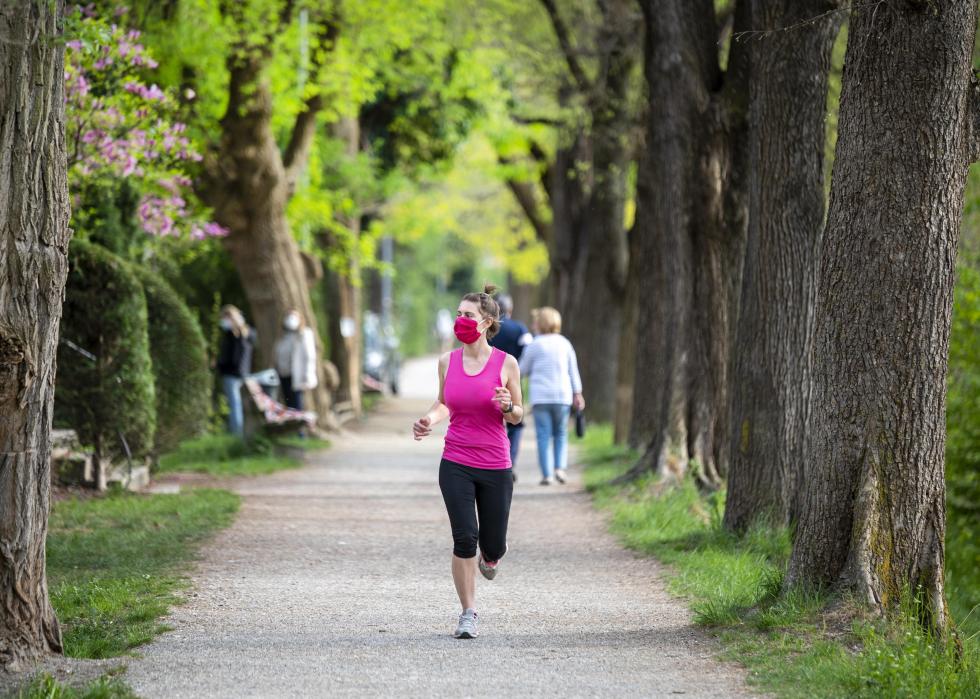
Alabama
Alabama Gov. Kay Ivey on July 14 issued a statewide mask mandate for Alabama that would be in effect until at least July 31. That rule calls for all people to wear masks in public and when within close proximity to other people.
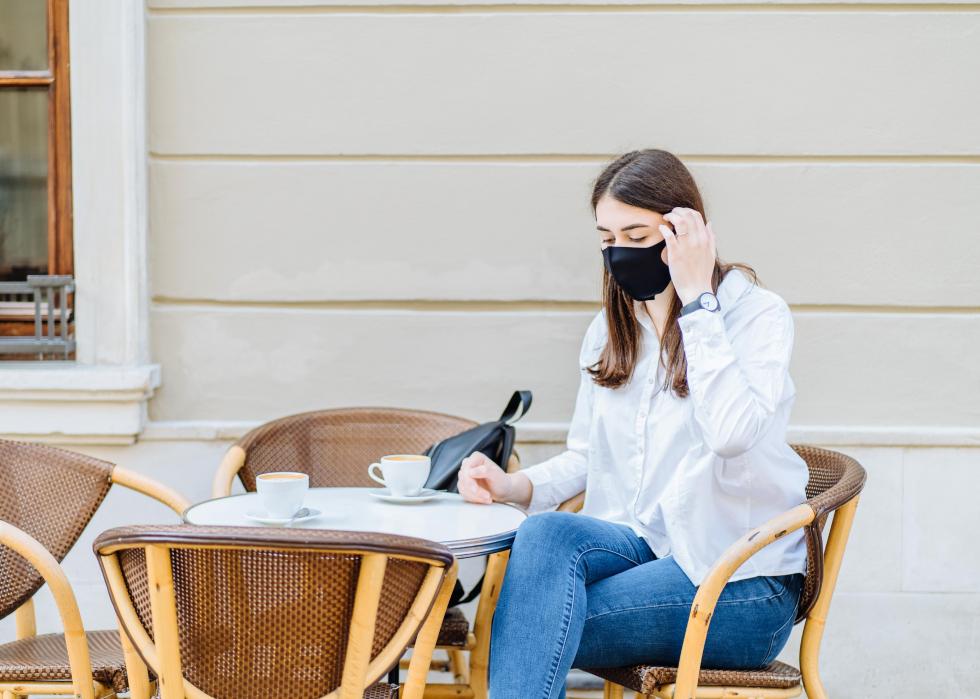
Alaska
The Juneau Assembly on June 20 voted unanimously in favor of a 90-day mask mandate. That order was modeled after a similar rule passed as an emergency ordinance in Anchorage. Gov. Mike Dunleavy has recommended wearing face masks in public but does not support a statewide order to do so despite rising case counts.
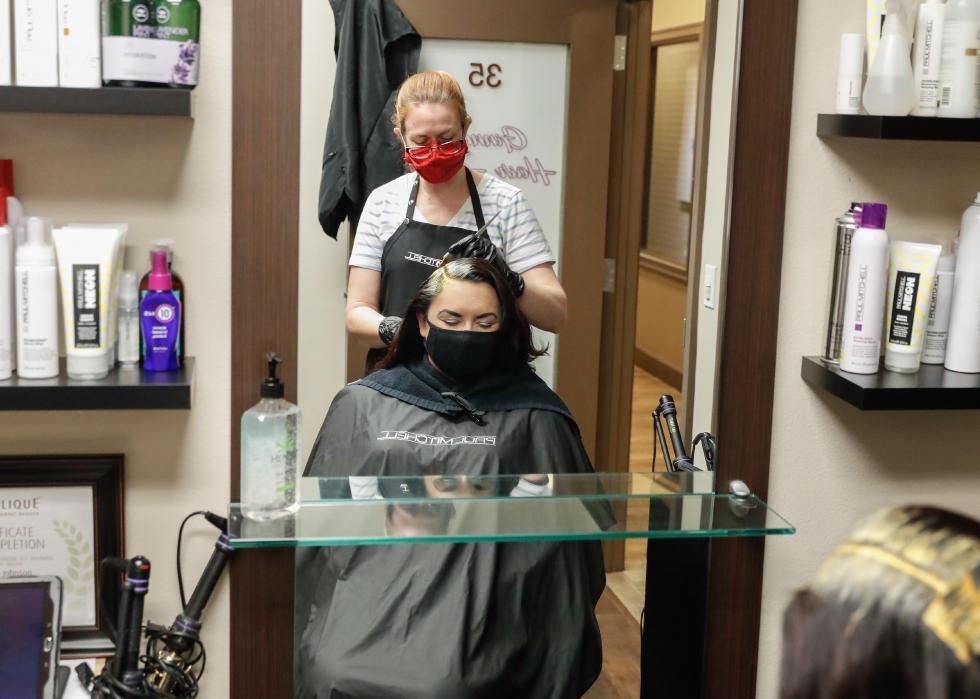
Arizona
In a study from the website Survival At Home, more than 150,000 geotagged Twitter data and hashtags were used to determine which states are most resistant to mask-wearing. Arizona ranked #1. Yet the state’s emboldened stance around closures and safety precautions has a growing consequence: As case counts continue to climb, businesses are shutting back down at the same time relief programs are slated to end. There is still no state mandate for mask-wearing. By July 21, Arizona had more than 148,000 confirmed COVID-19 cases and 2,918 deaths.
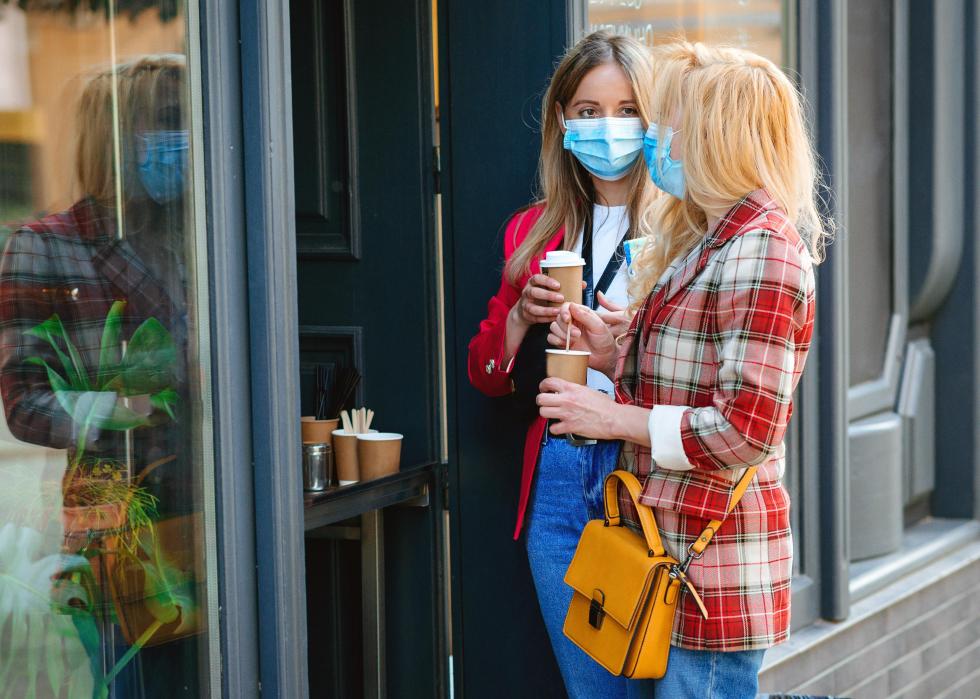
Arkansas
Arkansas Gov. Asa Hutchinson put forth a statewide mask mandate as of July 20. That order makes mask-wearing compulsory in any indoor or outdoor setting where six feet of social distancing can not be maintained. The order gives an exemption to those gathering at religious services.
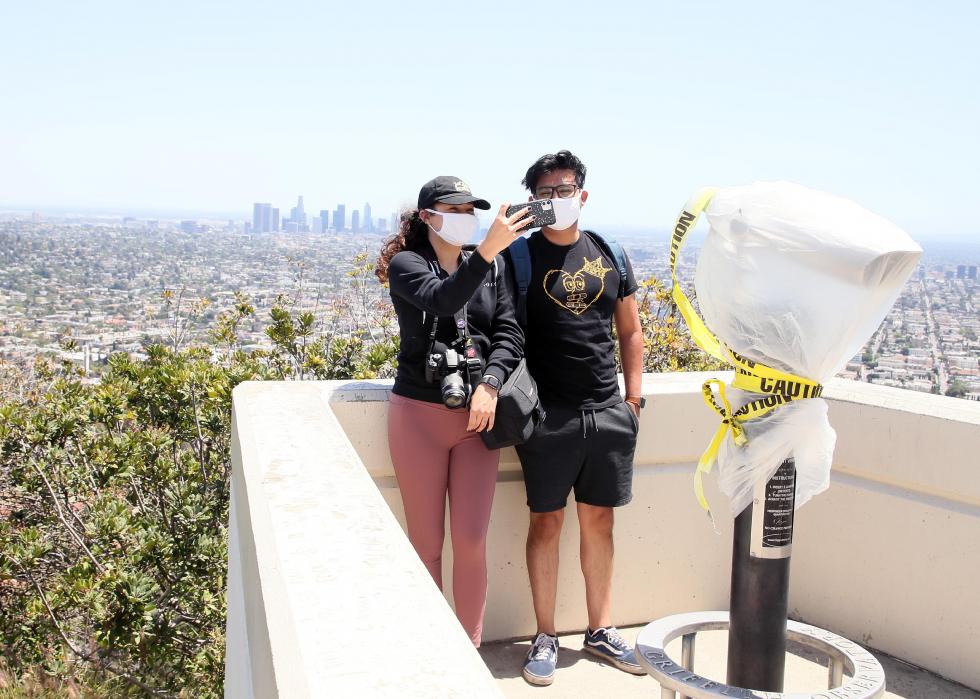
California
California has taken one of the strictest approaches in the country to face mask regulations. Gov. Gavin Newsom on June 19 made it a requirement to wear masks in public settings when social distancing isn't possible. It states that residents must wear face coverings when visiting indoor public spaces, including hospitals, pharmacies, doctors' offices, and on public transportation; in lines to enter places; and in any outdoor spaces where social distancing is not possible.
Exemptions to the mandate apply to those with underlying chronic lung disease, asthma, and those who have "developmental disabilities or intellectual delays," per CDC's nationwide guidelines.
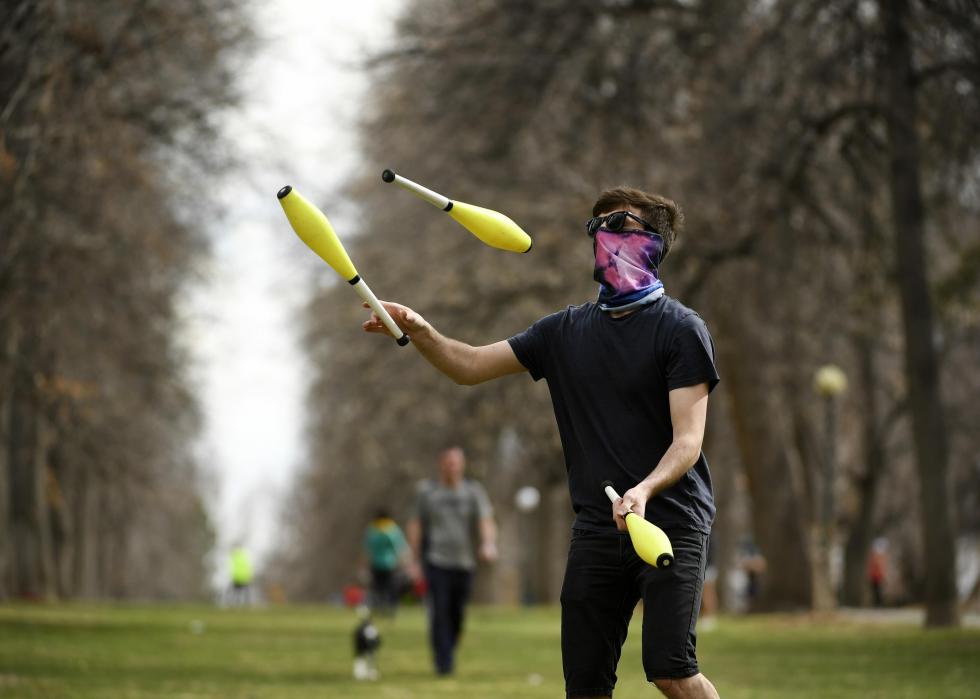
Colorado
Colorado Gov. Jared Polis in mid-April made it a requirement that employees at grocery stores and other essential businesses wear face masks, but stopped short of expanding that requirement to the public. That changed July 16 when Polis mandated masks throughout the state following a rise in COVID-19 cases in Colorado.
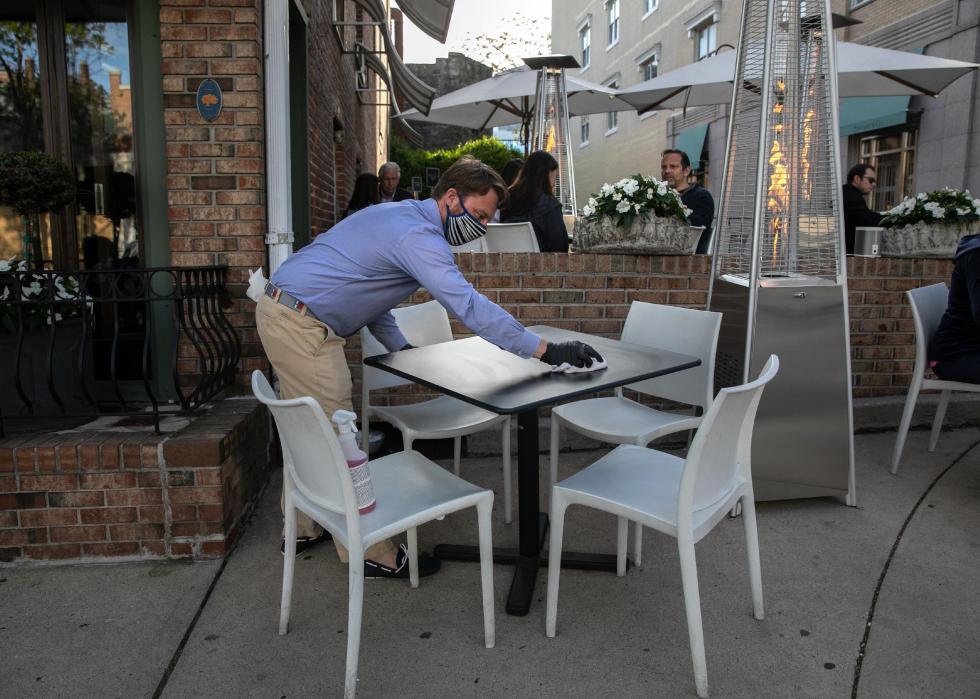
Connecticut
Gov. Ned Lamont issued an executive order effective on April 20 that required residents to wear a face mask in public. It exempts children under the age of 2. Connecticut has banded together with New York and New Jersey in a June 21 travel advisory that as of July 21 requires visitors from 31 states to quarantine for two weeks upon arrival.
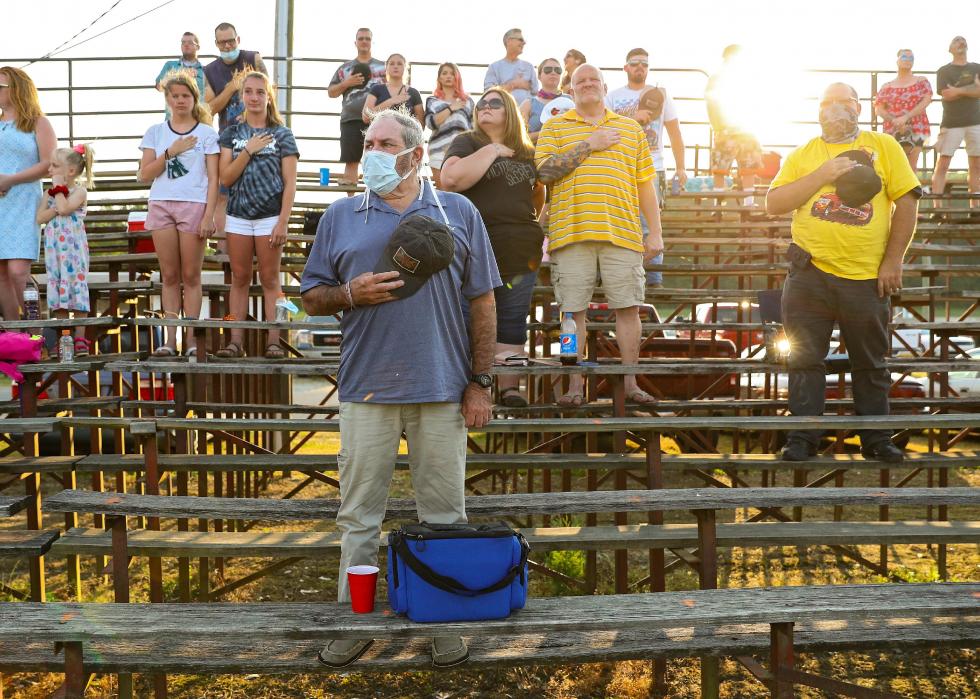
Delaware
Delaware Gov. John Carney issued an executive order that as of May 1, face masks are required in public settings. He also clarified that the face mask ordinance was not to encourage people to go out in public more often, but if it is necessary to do so, a face mask must be worn.
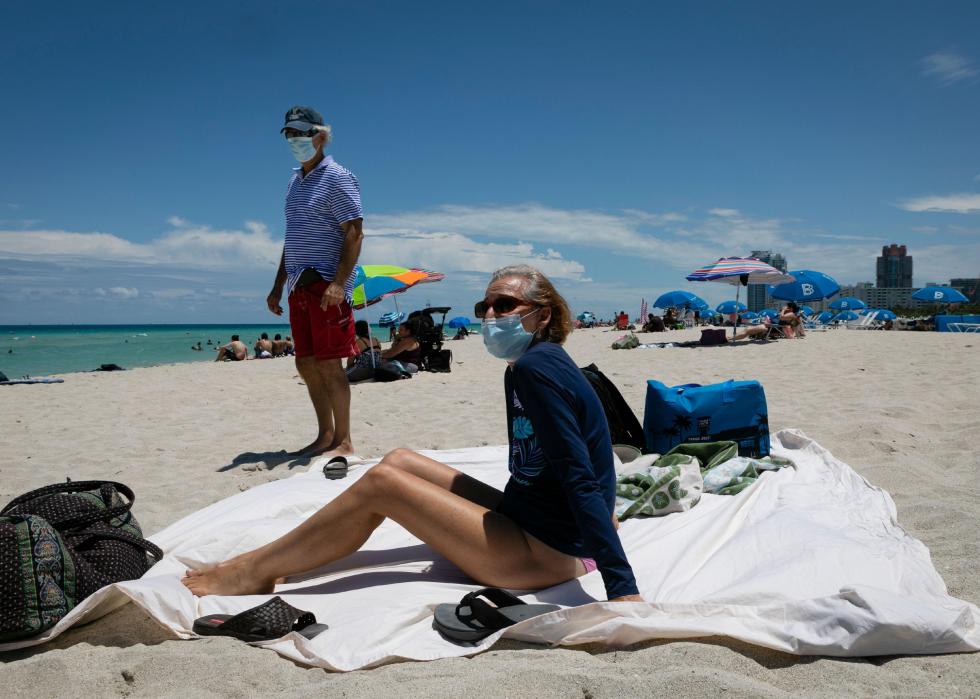
Florida
Florida does not have a statewide requirement regarding face masks. But by June 21, as state COVID-19 cases continued setting new daily records, many local municipalities began implementing their own as lawmakers pressured Gov. Ron DeSantis to implement a statewide requirement for masks. In Miami-Dade County, nearly a dozen mayors by June 22 announced new requirements for mask-wearing in public. Dozens of other Florida towns and areas have followed suit.
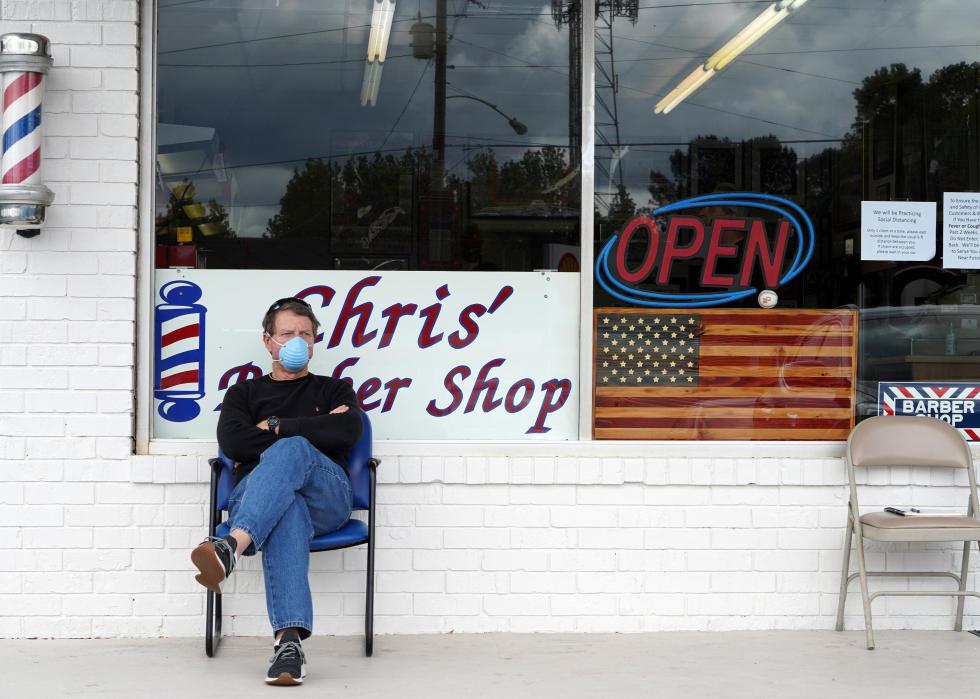
Georgia
Georgia Gov. Brian Kemp, along with state health officials, have asked residents to use face masks, but there is no statewide requirement for the general public. In fact, Kemp on July 16 sued in order to prevent Atlanta's Mayor Keisha Lance Bottoms from requiring city residents to wear face masks in public to help stop the spread of COVID-19.
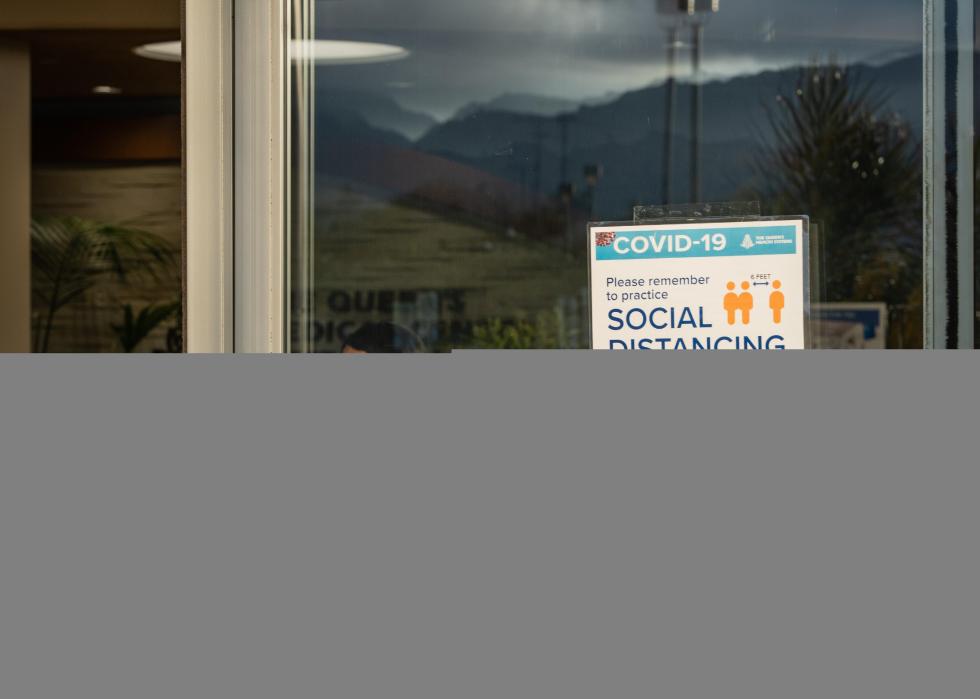
Hawaii
An April 17 ruling from Gov. David Ige requires face masks at all essential businesses in Hawaii. The entire island of Oahu mandated face masks as of July 3.
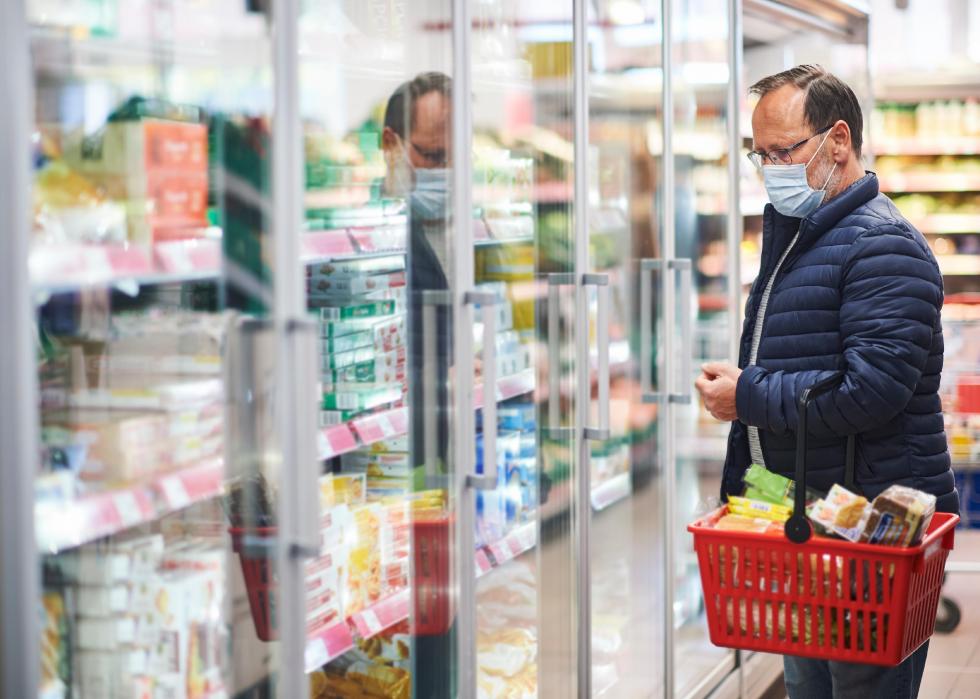
Idaho
As of press time, the state of Idaho was still in Stage 4 of its reopening. Masks are recommended but not required; hospital officials on July 14 put out a public request for people throughout the state to wear masks to slow the spread of coronavirus as hospitals there become overwhelmed.
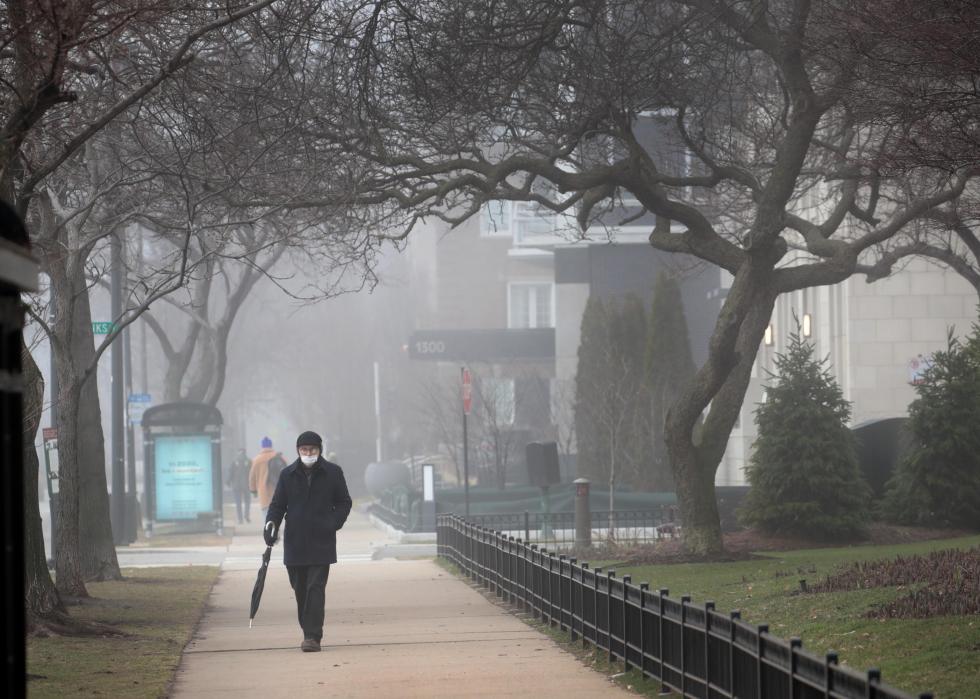
Illinois
The state of Illinois on May 1 issued a requirement to wear a mask in public wherever social distancing is not possible. According to Illinois Policy, many towns near Chicago had already instituted the mask requirement before Gov. J.B. Pritzker's policy announcement, but now the mandate is statewide.
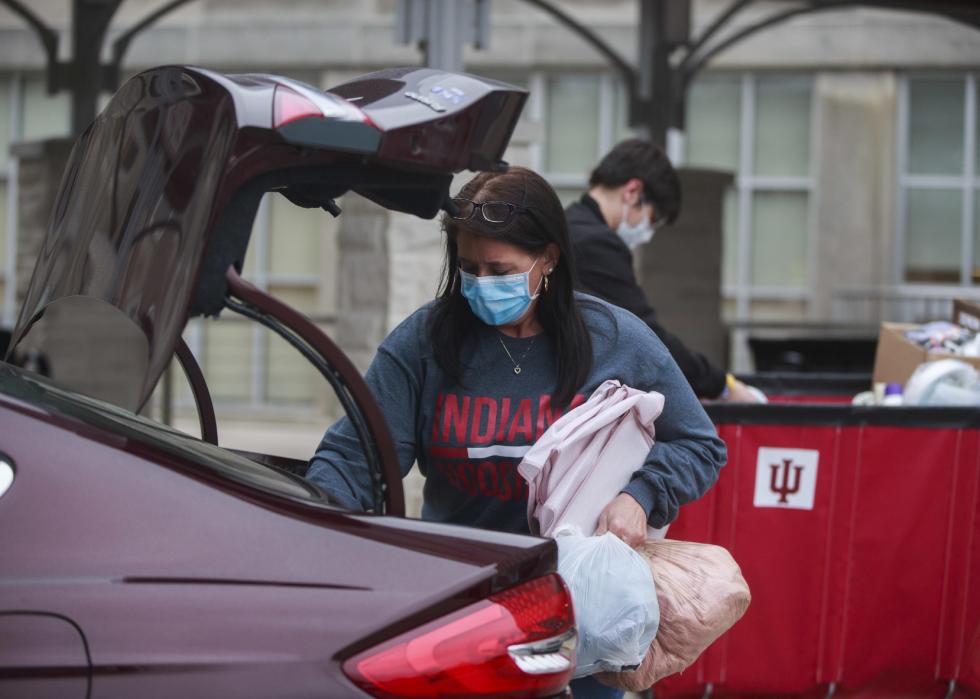
Indiana
While Indiana requires face coverings for restaurant employees and personal care service employees, masks are only recommended in public settings. The recommendation from the Indiana State Department of Health went into place on April 5. Meanwhile, individual counties—including St. Joseph, LaGrange, and Lake—along with dozens of private businesses throughout the state require face masks.
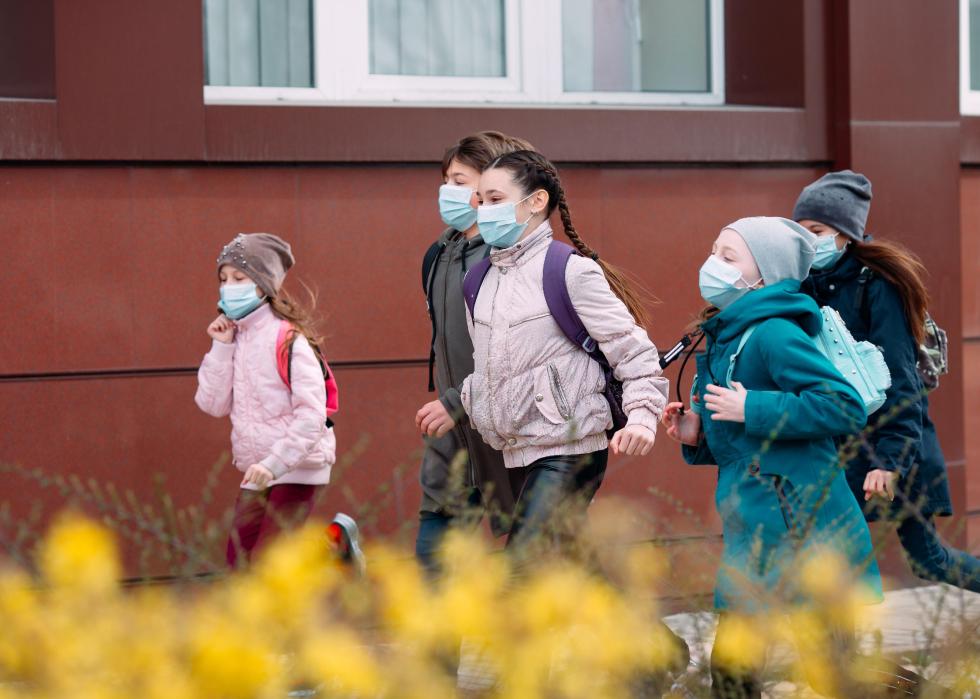
Iowa
All of Iowa's 99 counties have reopened restaurants and other businesses and the Iowa Department of Public Health requires masks for employees and customers if social distancing is not possible. Masks are recommended in the state but are not required; Iowa City's Mayor Bruce Teague on July 21 issued a mask mandate in contradiction to Gov. Kim Reynolds, who ordered that local officials could not require mask-wearing.
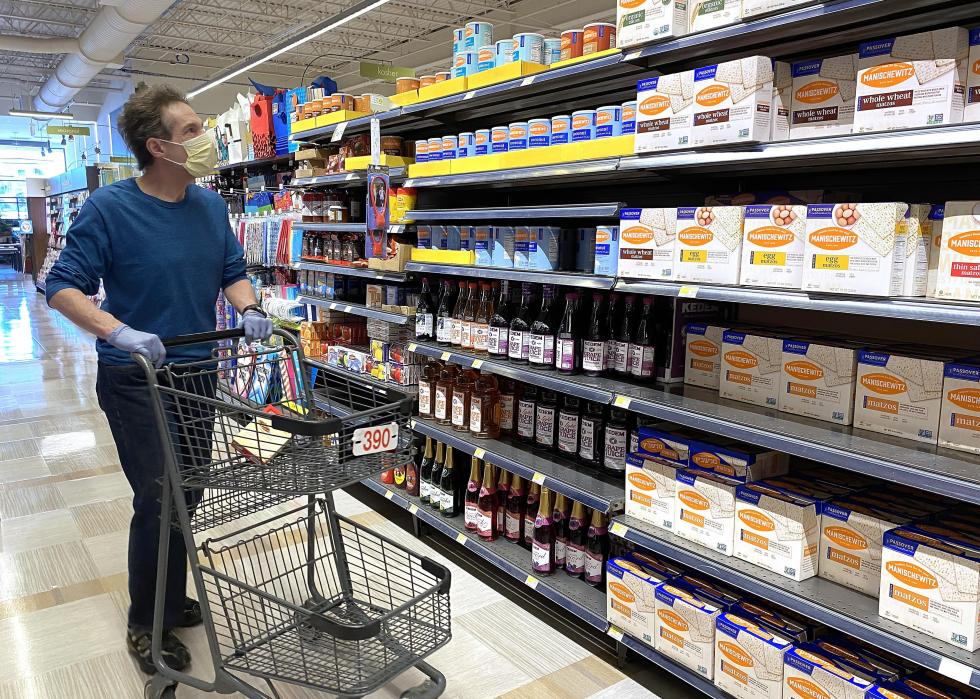
Kansas
Kansas Gov. Laura Kelly on July 3 enacted a statewide face mask mandate. The governor on July 20 released information on a further mandate that would require masks in public and private K-12 schools this fall.
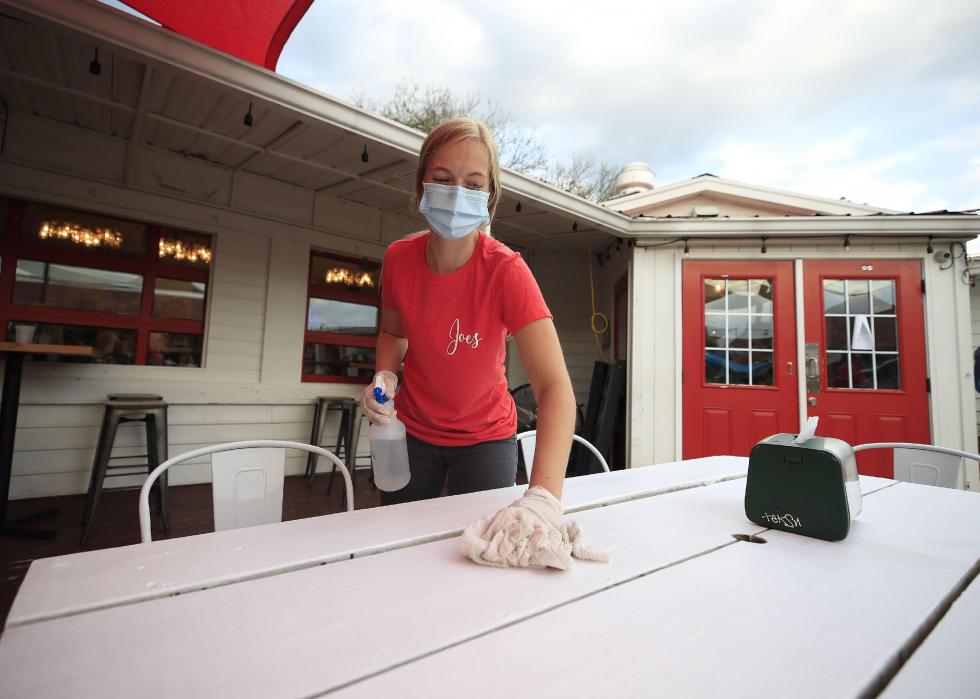
Kentucky
Gov. Andy Beshear has made wearing face masks in public a requirement. Restaurant customers are required to wear a mask except for while seated.
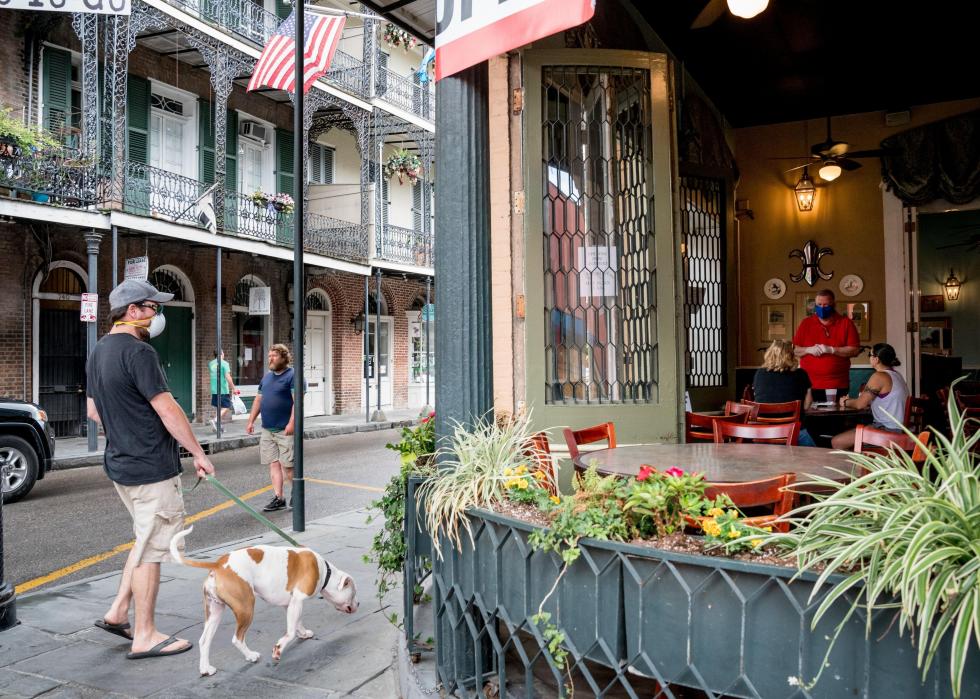
Louisiana
Louisiana on July 13 mandated the use of face coverings. Parishes with fewer than 100 cases per 100,000 people are able to opt out of the requirement.
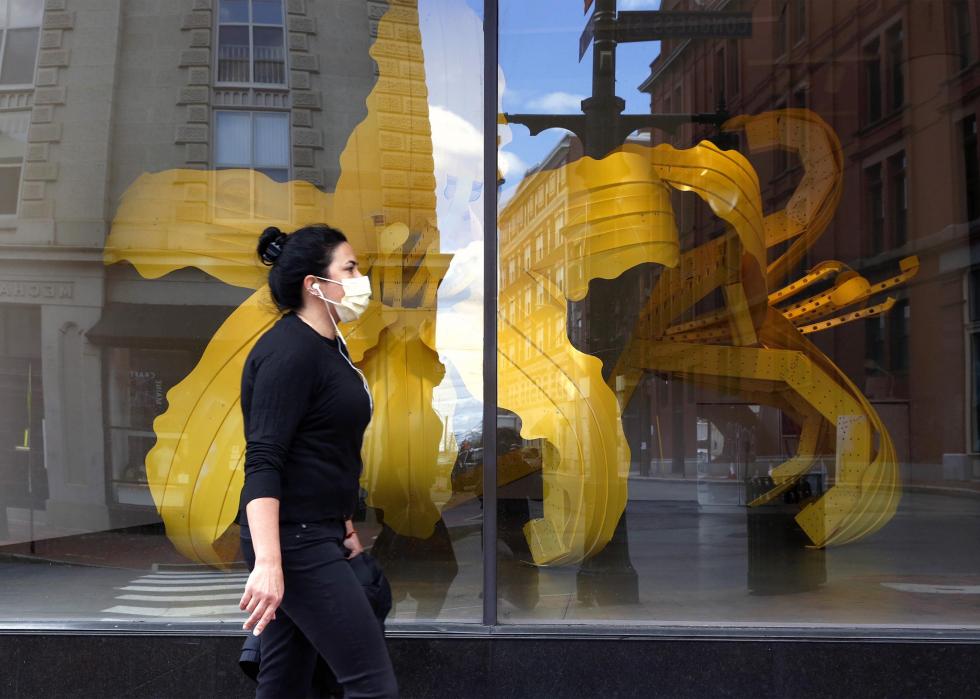
Maine
Maine Gov. Janet Mills on April 29 issued an order that required face masks in public spaces where social distancing was impossible. The rule was expanded in early July to mandate face coverings at outdoor bars, big retail locations, tasting rooms, and businesses that offer overnight lodging. The counties of Hancock, Waldo, Knox, Lincoln, Sagadahoc, Cumberland, and York are all subject to the mandate, as are cities including Auburn, Bangor, Brewer, and Lewiston.
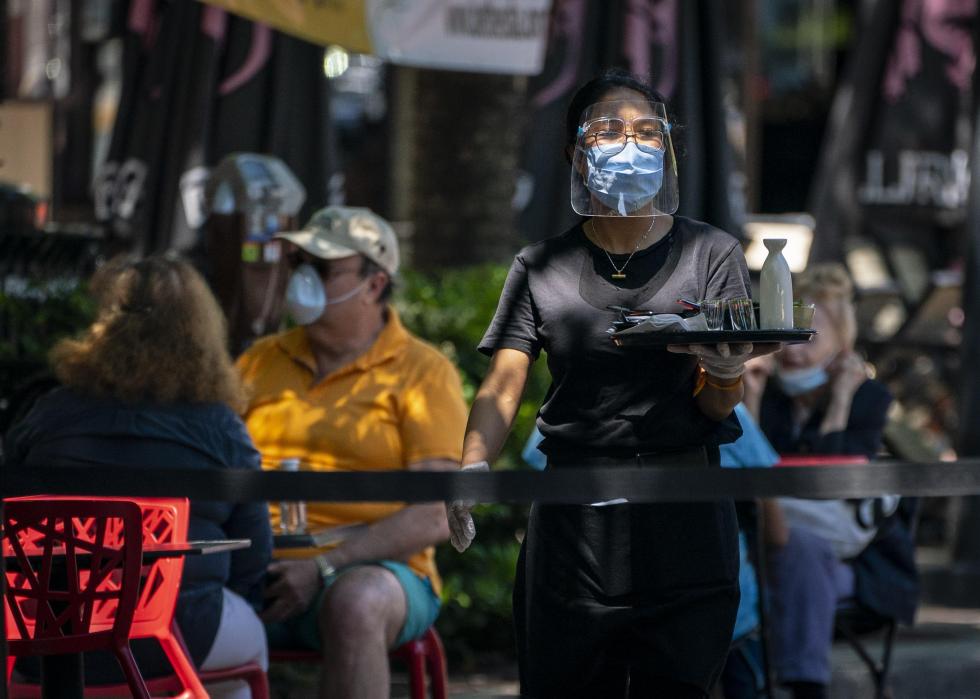
Maryland
With coronavirus cases rising throughout Maryland and a state positivity rate of 4.49%, Baltimore County announced face coverings would be required at all indoor locations, including indoor recreation centers and houses of worship, starting July 23. Face mask rules vary by county and city; however, Maryland's Gov. Larry Hogan has since April 18 required masks for commuters on all Maryland public transit.
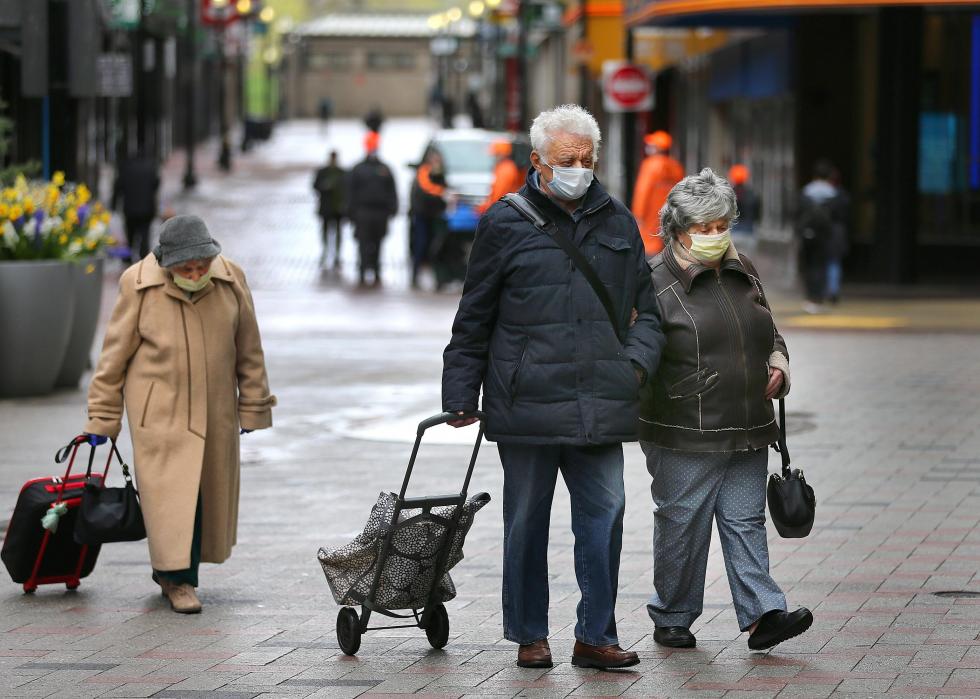
Massachusetts
An order from Gov. Charles Baker made it a requirement for the general public to use face masks starting May 6 in indoor and outdoor spaces where social distancing is not possible. The state entered the second step of Phase 2 of its reopening on June 22.
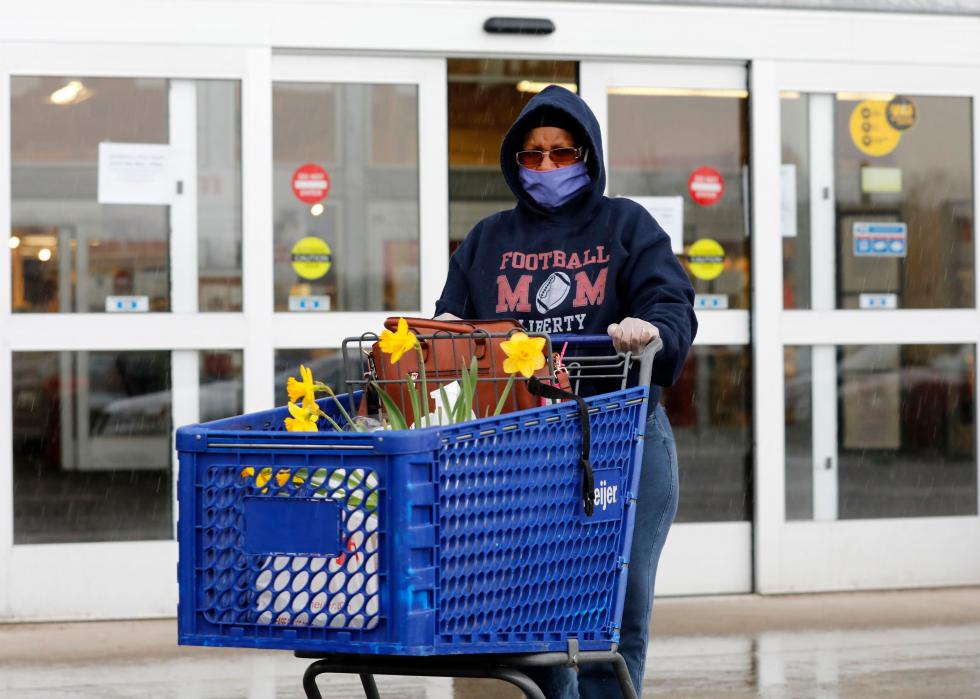
Michigan
As of June 18, the state of Michigan put into effect a requirement for all residents to wear face masks in all public settings. The rule also gives businesses the right to refuse individuals who are not covered.
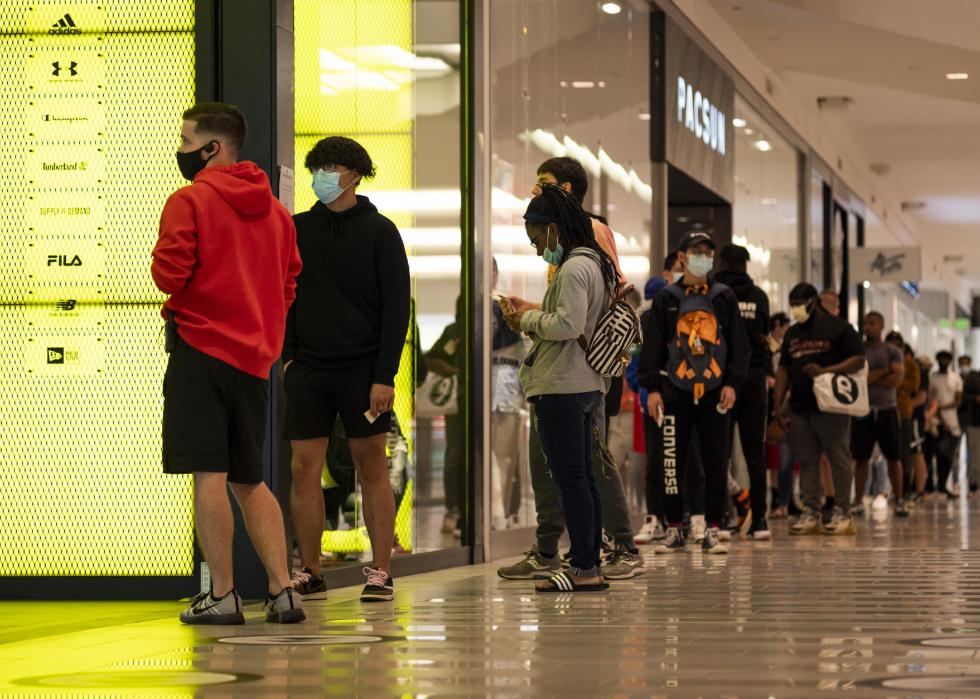
Minnesota
The state of Minnesota requires workers at retailers, bars, restaurants, and personal care service establishments to wear masks. There is no statewide requirement for wearing masks, however, a growing number of cities throughout the state have over the summer begun mandating face coverings.
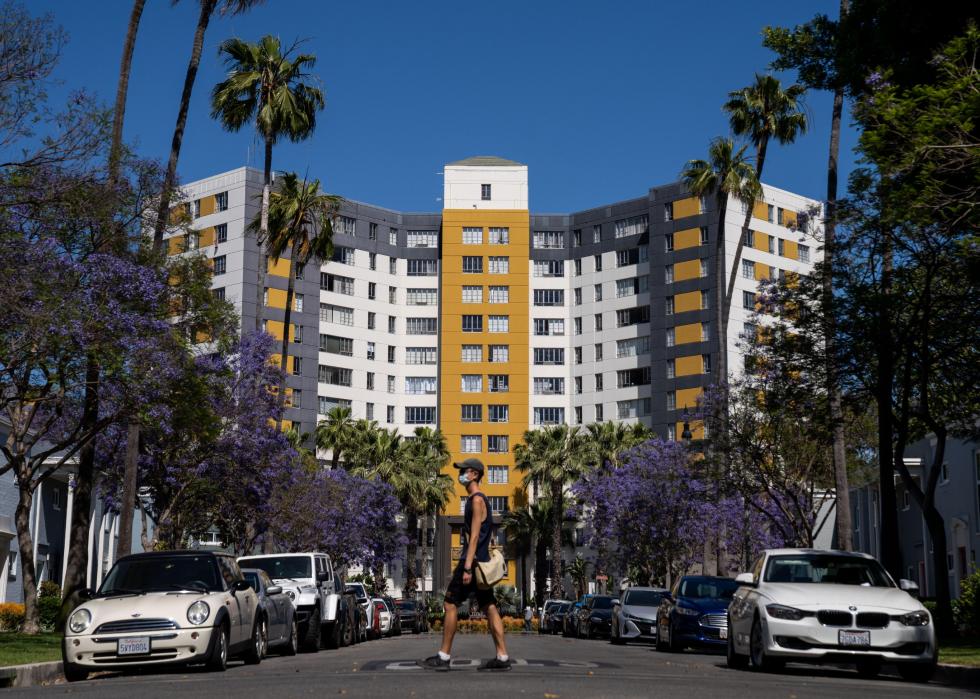
Mississippi
In Mississippi, masks are mandatory in all businesses in Claiborne, De Soto, Grenada, Harrison, Hinds, Jackson, Jefferson, Madison, Quitman, Rankin, Sunflower, Washington, and Wayne counties. Workers at restaurants and bars throughout the state who interact with customers must also wear face coverings. Personal-care workers and clients and gym staff are also mandated to wear masks. It is recommended, though not required, that Mississippians wear face coverings while out in public.
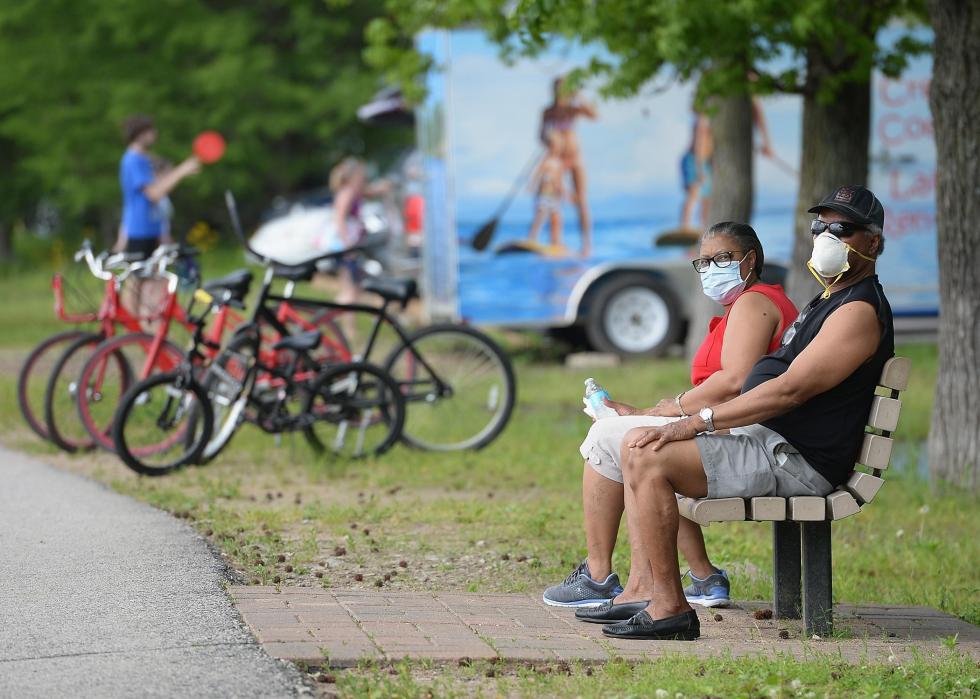
Missouri
Gov. Mike Parson has refused to make face masks mandatory in the state of Missouri, saying it is not the government's place to make this decision for the people. More than 34,000 Missourians have tested positive for COVID-19 since March.
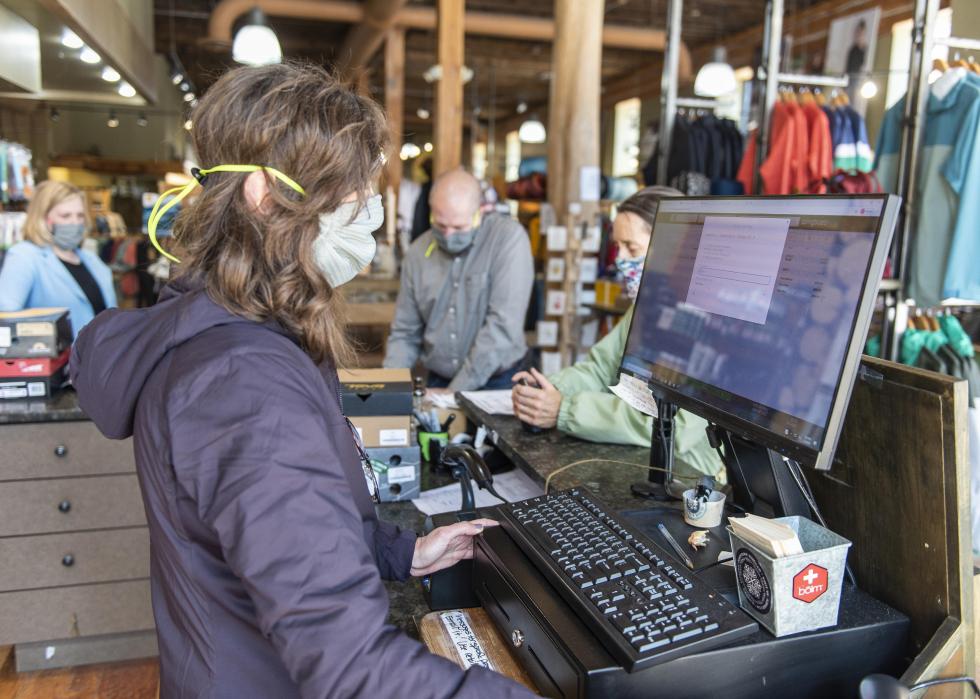
Montana
Montana Gov. Steve Bullock on July 15 issued a directive mandating face masks in counties with four or more active COVID-19 cases. The rule applies to various indoor and outdoor settings and stops short of a statewide rule.
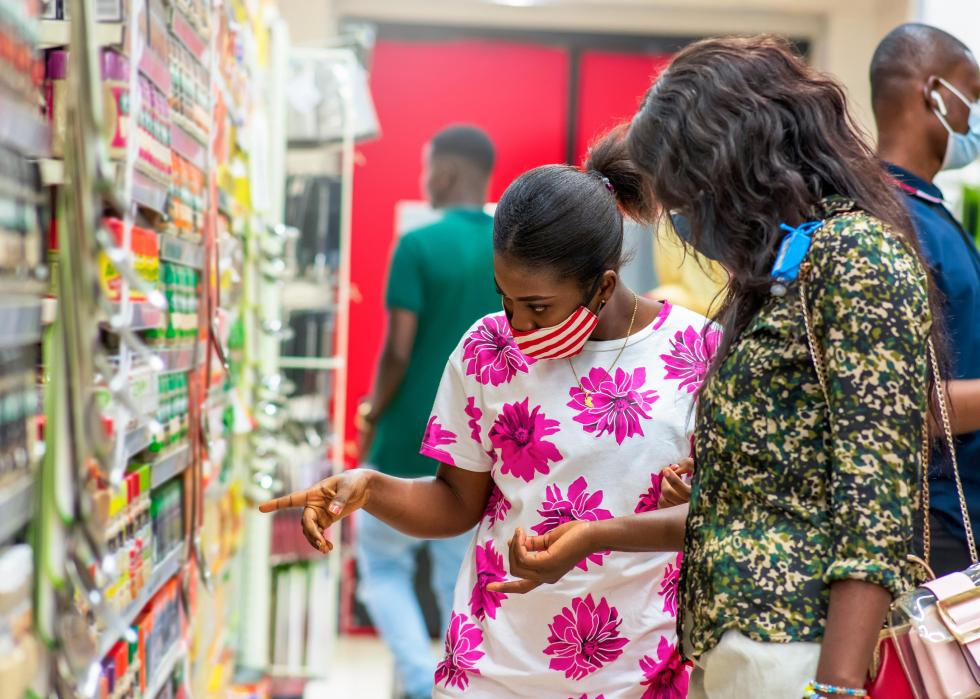
Nebraska
Gov. Pete Ricketts encourages, but doesn't require masks, and has said mandates to wear face coverings represent a governmental overreach. Ricketts has further told local governments they will not get COVID-19 relief funding if they make mask-wearing a requirement in government buildings. Lancaster County has among the highest cases in Nebraska and has specific requirements for county businesses, including masks for restaurant employees; the city of Lincoln now requires masks in most of its indoor spaces.
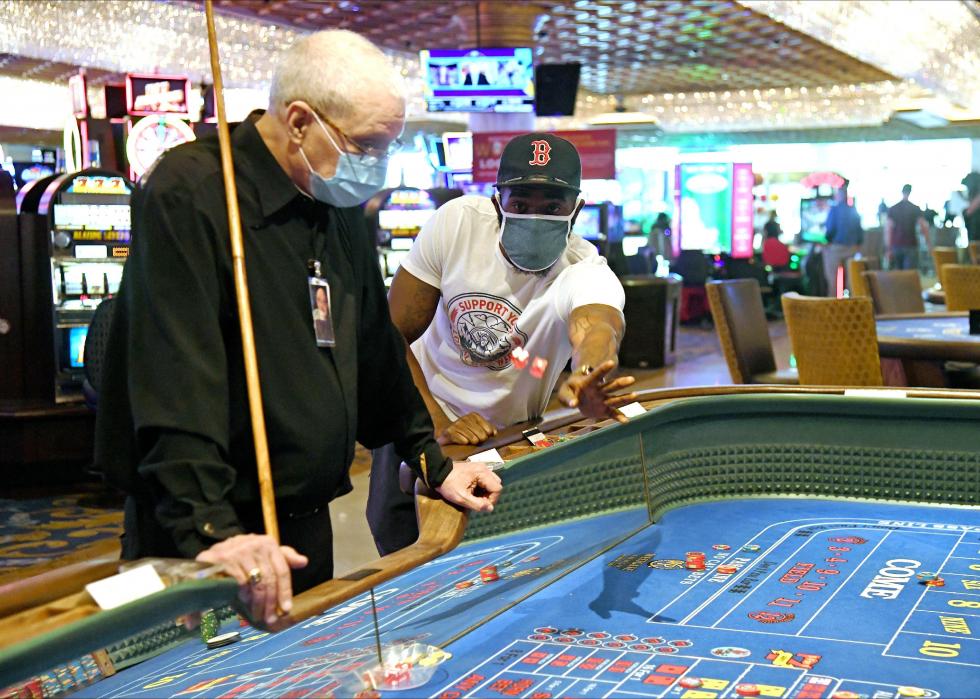
Nevada
Gov. Steve Sisolak on June 24 made it face coverings mandatory in all public spaces in Nevada for anyone older than 9. The move came after four straight weeks of increasing COVID-19 case counts.
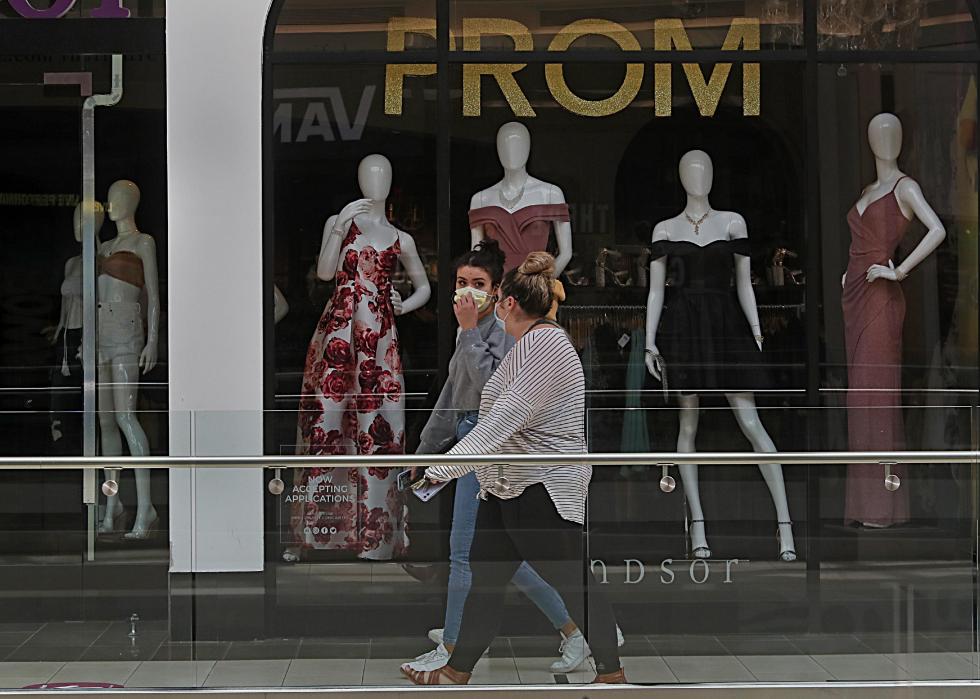
New Hampshire
As of July 21, 400 people had died in the New Hampshire from COVID-19 while case counts reached 6,262. The state has no mandate for universal mask-wearing but does require employees at retailers, restaurants, golf courses, and personal care facilities to don cloth face coverings. Other employees and members of the public are strongly encouraged to wear masks; Gov. Chris Sununu on July 21 announced a public service campaign to encourage more young people to wear masks.
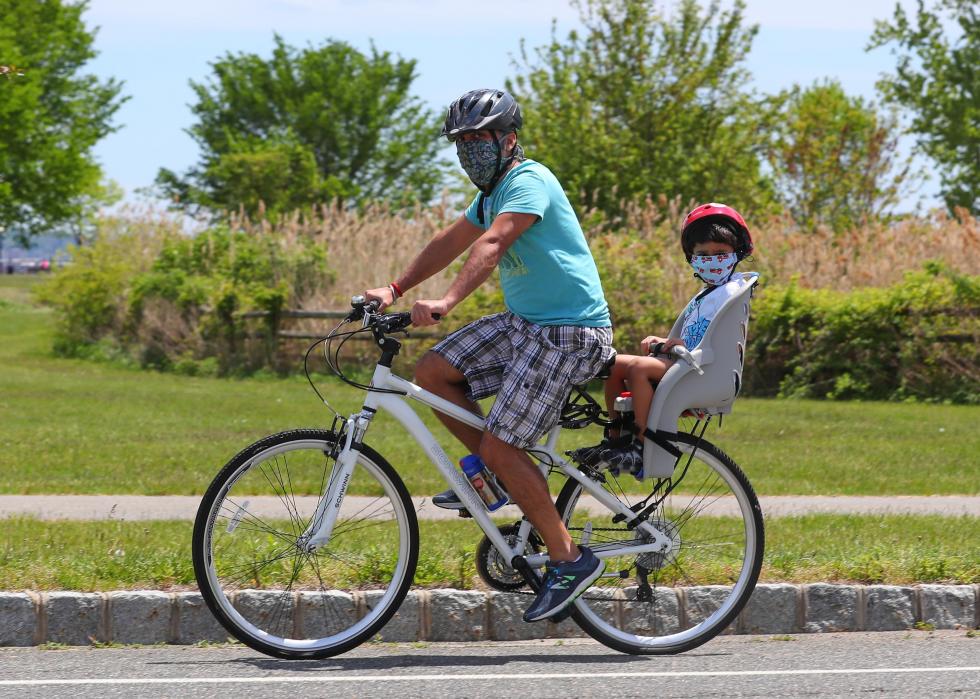
New Jersey
New Jersey was the first state to require customers and employees to wear face masks at essential businesses and construction sites. The mandate went into effect on April 8. Commuters on New Jersey's public transportation system are all required to wear face coverings, as well. The order was expanded on April 11 to apply to people picking up take-out.
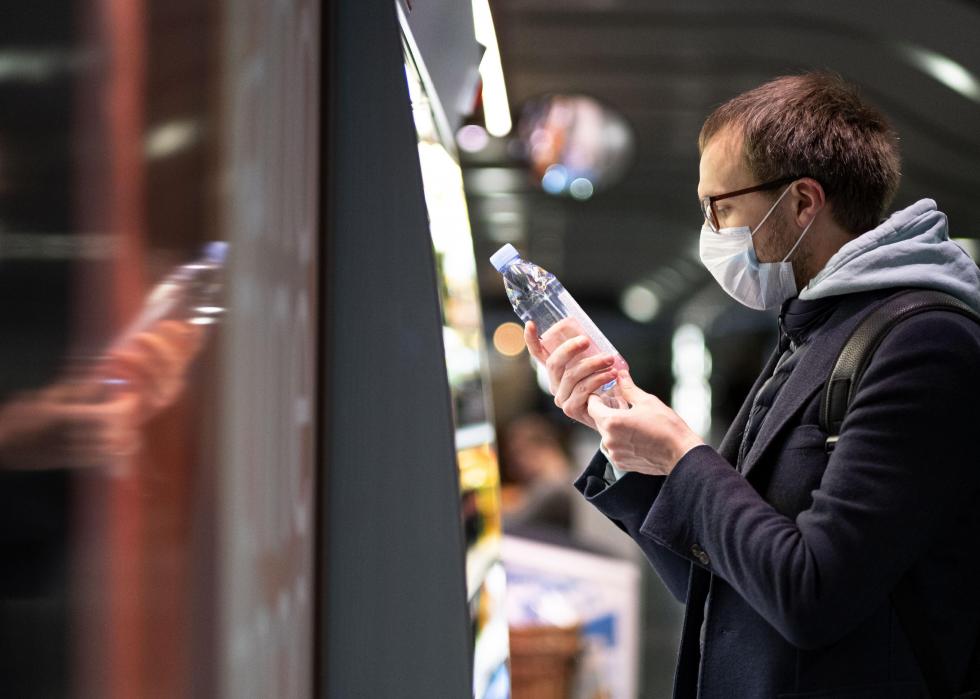
New Mexico
A May 15 public health order in New Mexico requires face masks or cloth coverings in all public settings unless instructed otherwise by a health care provider. To mitigate rising COVID-19 case counts in the state, Gov. Michelle Lujan Grisham on July 1 announced that New Mexico would more rigorously enforce mask-wearing rules, including by instituting a $100 fine for those who do not follow guidelines.
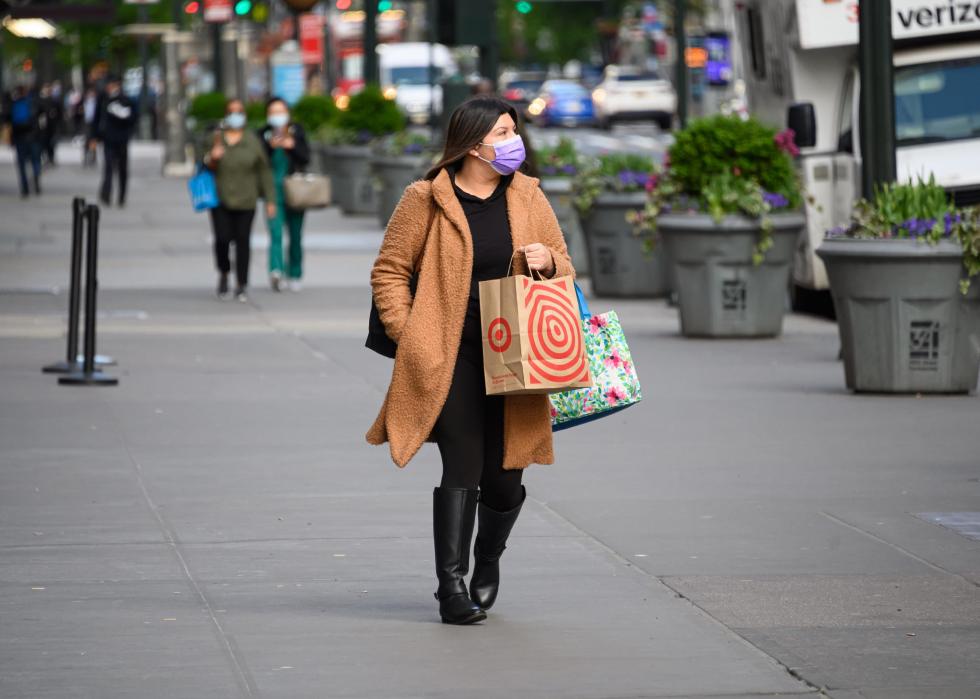
New York
New York's Gov. Andrew Cuomo signed an executive order on April 15 that made face masks in public mandatory wherever social distancing isn't possible. All employers are additionally required to provide workers with face coverings.
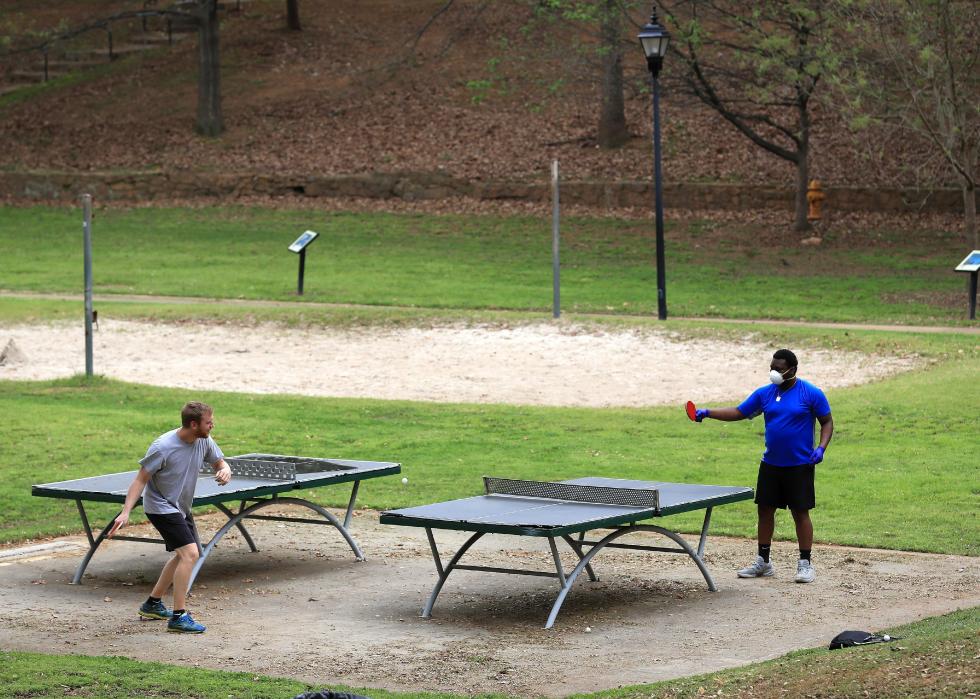
North Carolina
North Carolina Gov. Roy Cooper on June 29 enacted an executive order requiring face masks in public. There are several exceptions, including people who are actively eating, drinking, or exercising, as well as those with documented medical conditions that would make mask-wearing difficult or dangerous.
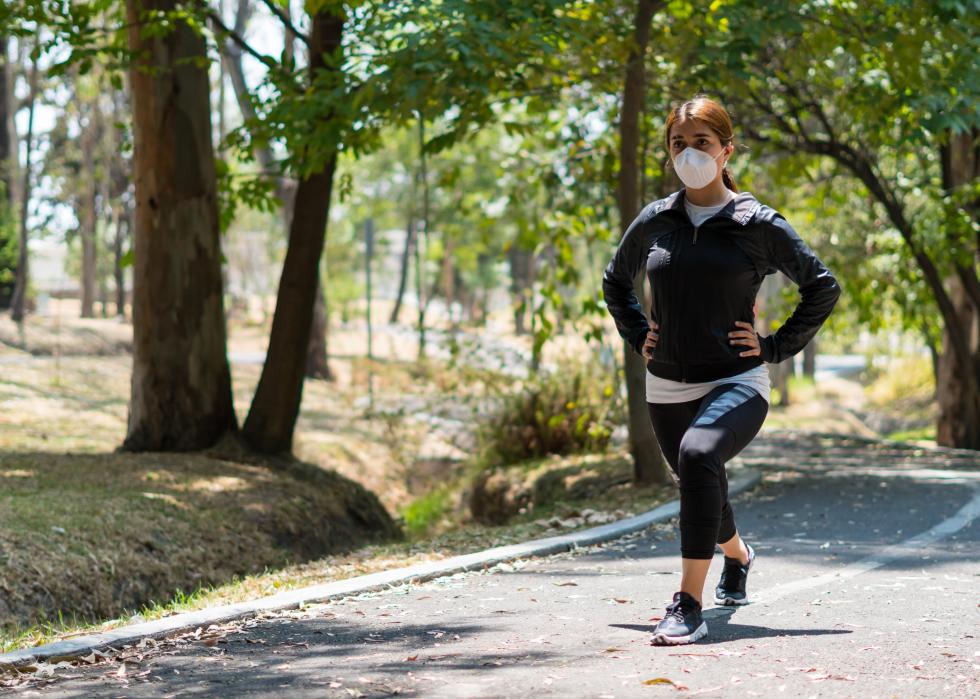
North Dakota
North Dakota’s government recommends masks in public, saying employees and the general public should wear face coverings. Employers are also encouraged to have face masks in the workplace. There is no mandate, however. Personal care service employees are required to wear masks.
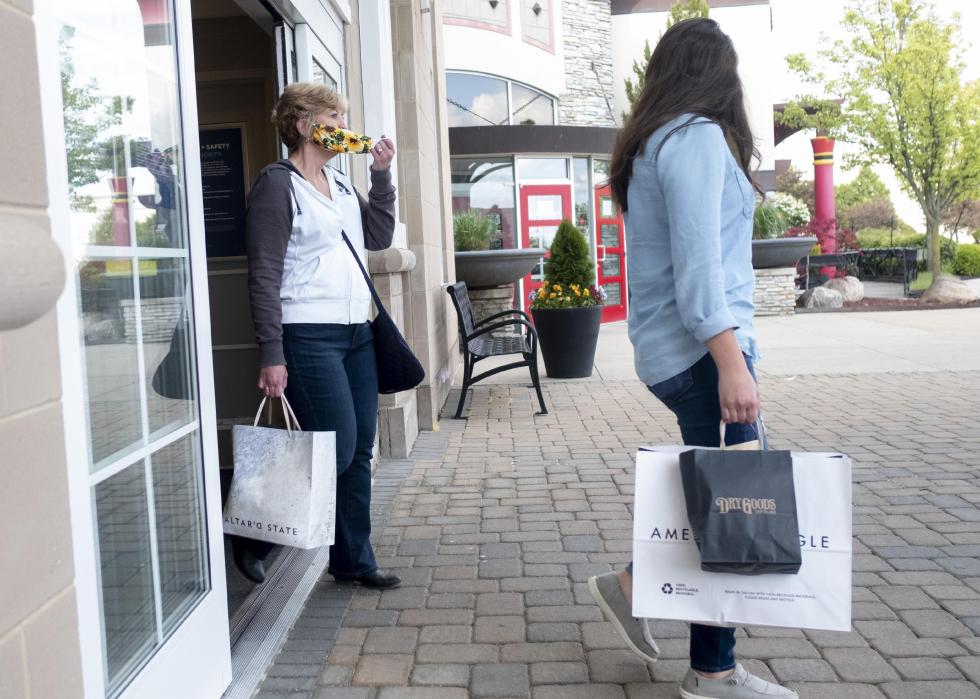
Ohio
Gov. Mike DeWine of Ohio on April 27 said face masks would be required while shopping at retail stores; the backlash to his remarks led to him revising his statement just a day later. An order enacted July 8 requires any Ohioans living in an counties with heightened case counts (classified as purple or red status) is required to wear a face mask while out.
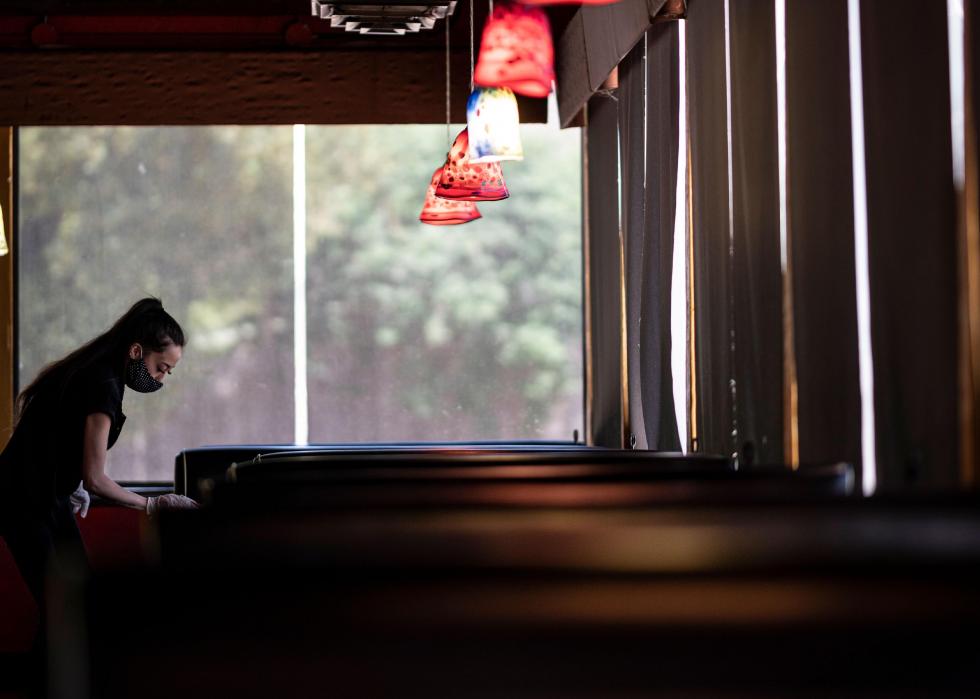
Oklahoma
There are various mask-wearing mandates in parts of Oklahoma, including in Oklahoma City and Yukon. Oklahoma Gov. Kevin Stitt has not issued any statewide requirements.
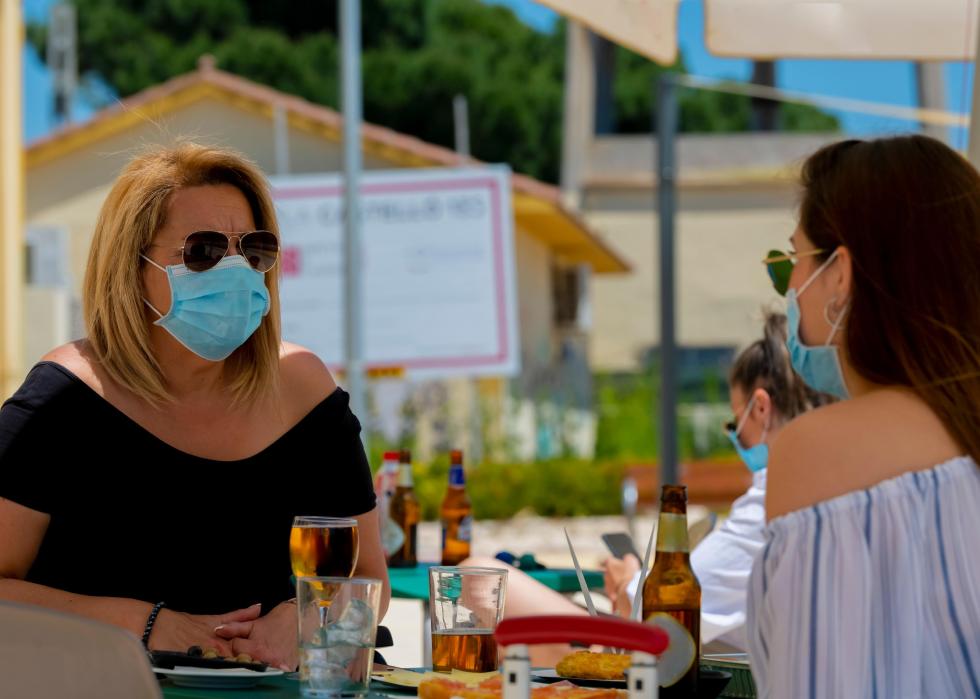
Oregon
Throughout Oregon as of July 15, everyone is required to wear a face covering in any public setting where social distancing of at least 6 feet is impossible. Masks have been required throughout Oregon in all indoor spaces since July 1.
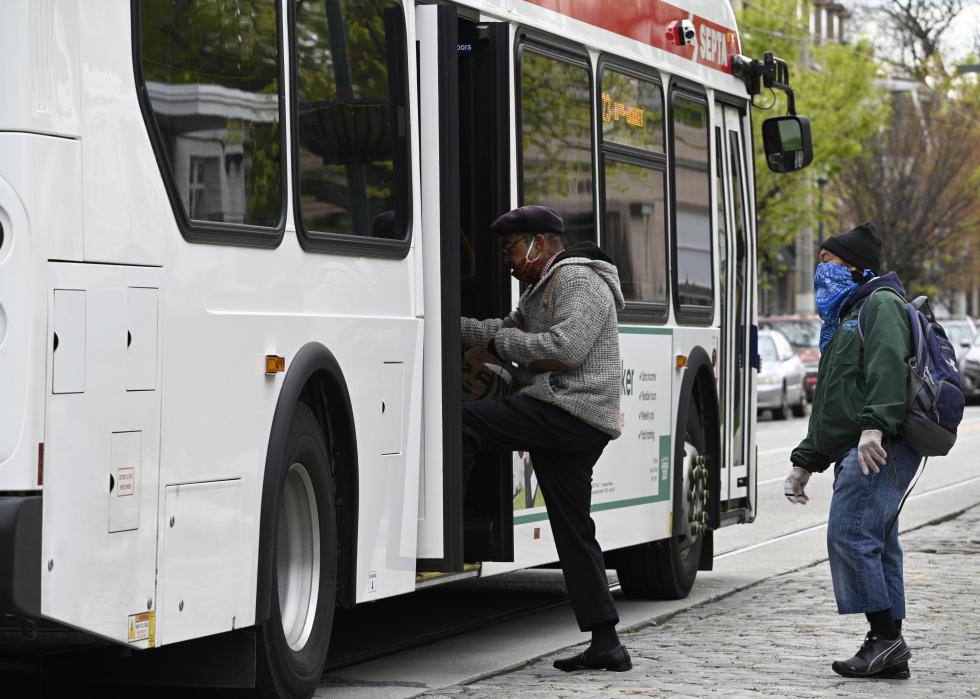
Pennsylvania
Pennsylvania's Department of Health on April 19 issued an order requiring essential business employees and customers to wear masks, and that those businesses provide masks to employees. There is also a statewide mask mandate stipulating anyone older than 2 must wear face coverings anywhere social-distancing is impossible.
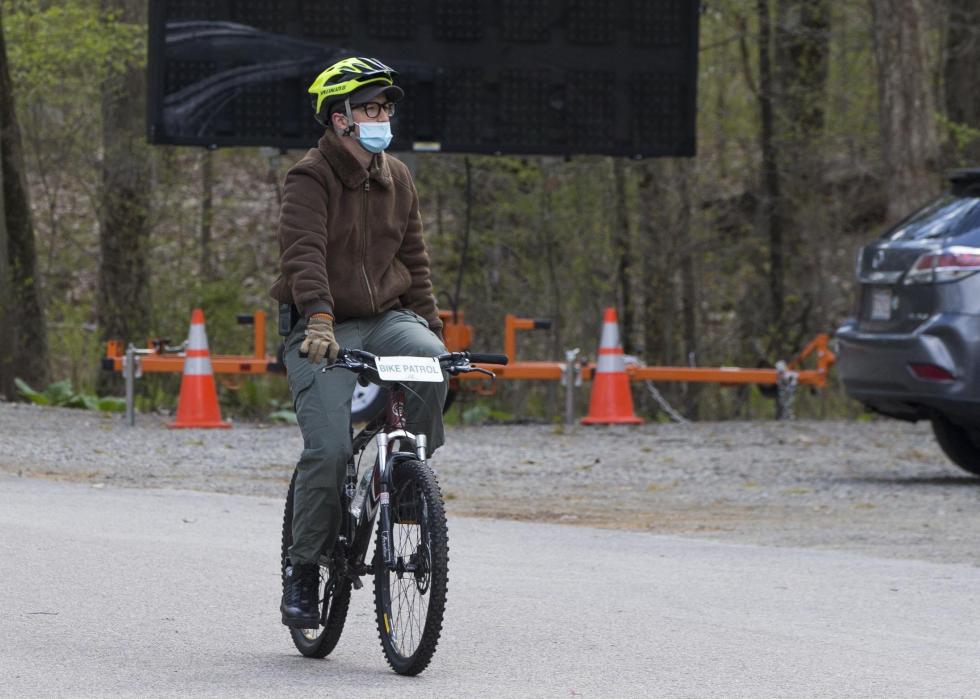
Rhode Island
Rhode Island Gov. Gina Raimondo on May 8 made face masks mandatory for all residents while in public settings. This applies to both indoor or outdoor areas.
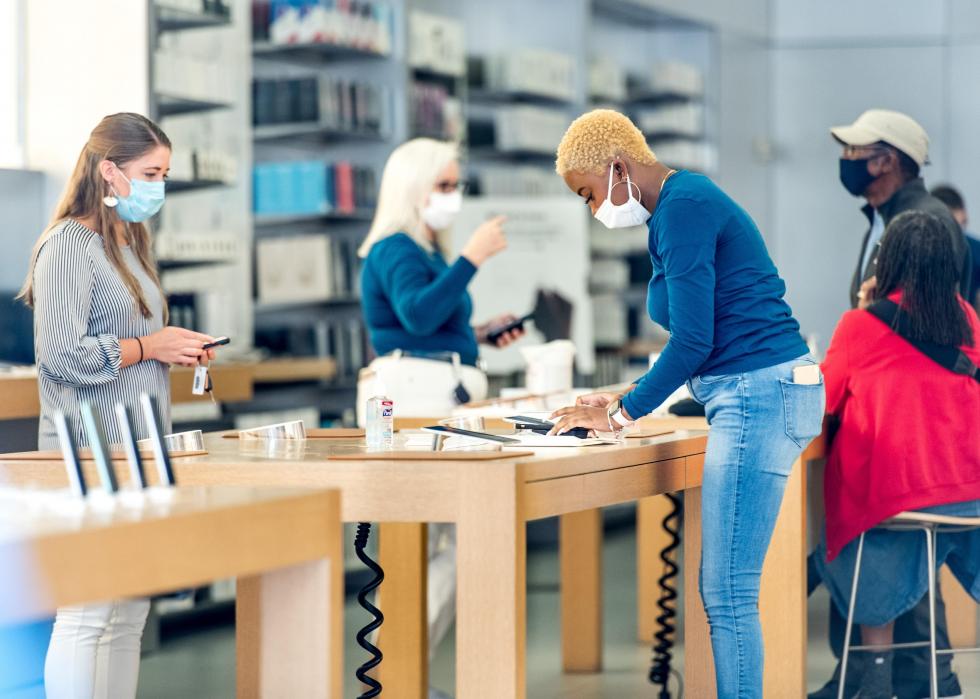
South Carolina
There is no statewide mandate requiring South Carolinians to wear masks in public. That said, the South Carolina Department of Health and Environmental Control encourages face coverings in public. Cities and towns throughout the state, including places like Greenville and Myrtle Beach, have set their own mask rules with various emergency ordinances.
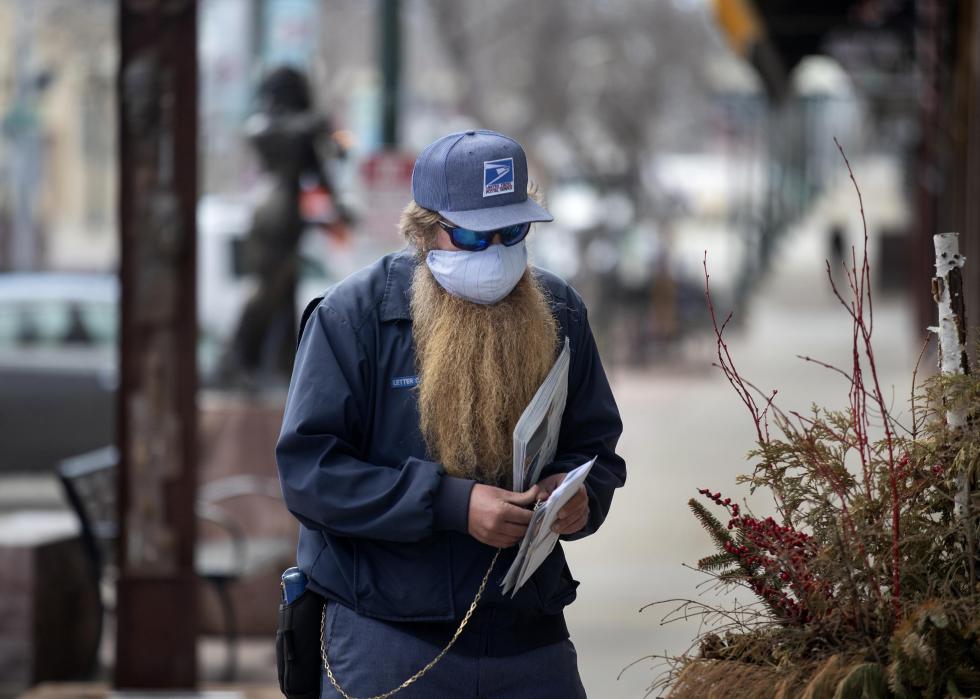
South Dakota
The South Dakota Department of Health has a recommendation, not a mandate, that residents wear masks in public. Several South Dakotans have made their opinions known by placing surgical masks on the bronze statues that represent South Dakota's past governors.
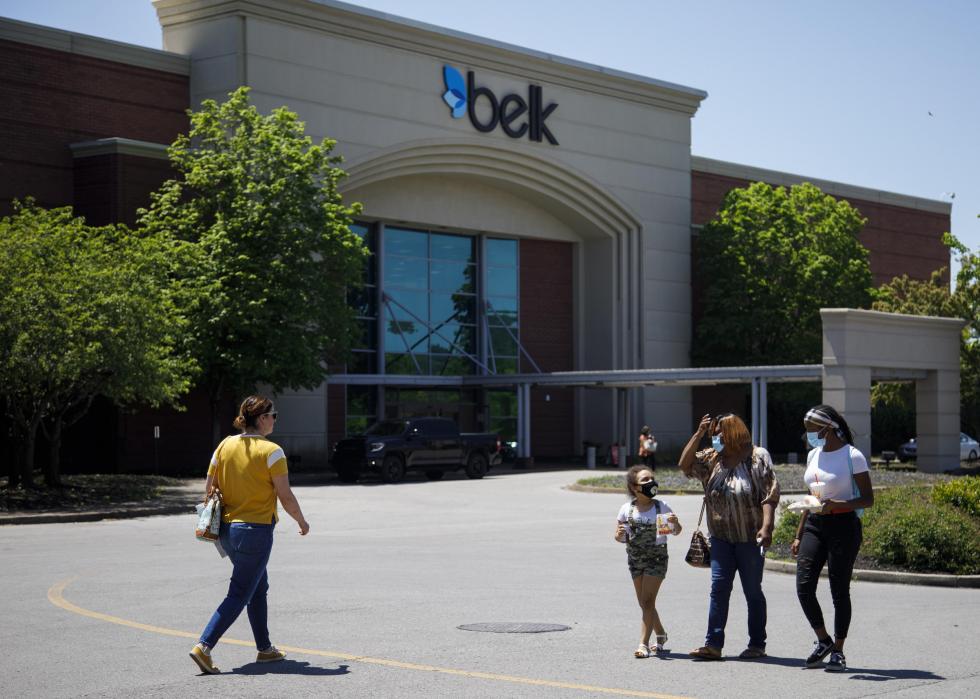
Tennessee
Gov. Bill Lee on July 3 granted 89 of Tennessee’s 95 counties the ability to set mask requirements for the public. The state has also given businesses throughout the state the right to refuse service for customers who are not wearing face masks. The state as of July 21 had recorded more than 81,000 COVID-19 cases.
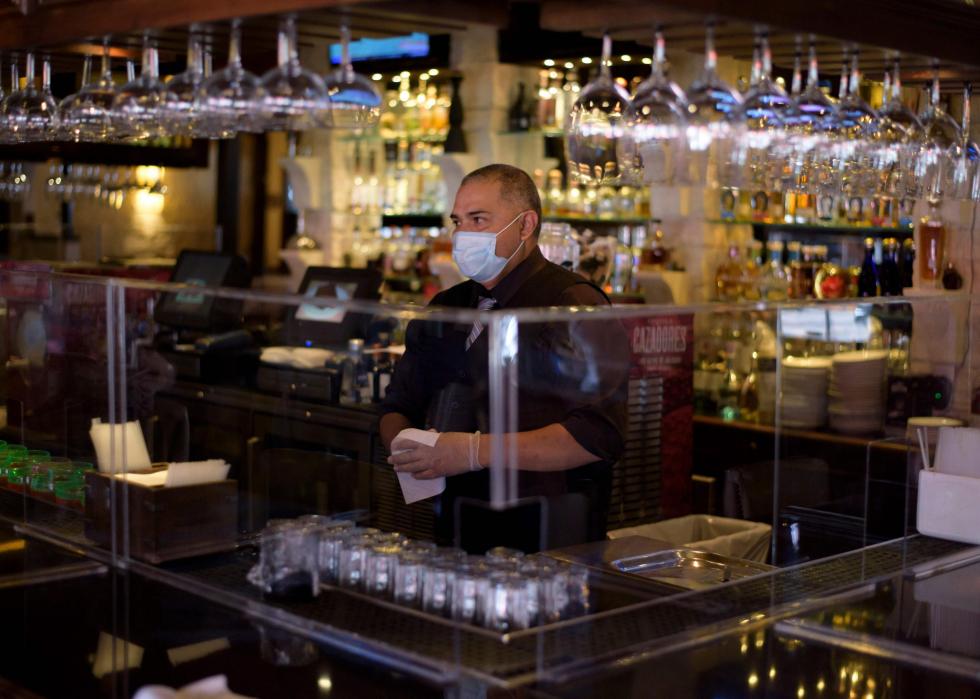
Texas
An April 28 announcement from Gov. Greg Abbott recommended that all residents cover their faces in public, which overruled county-level mandates. As cases spiked in Texas, Abbott on July 2 mandated that masks be worn in most counties.
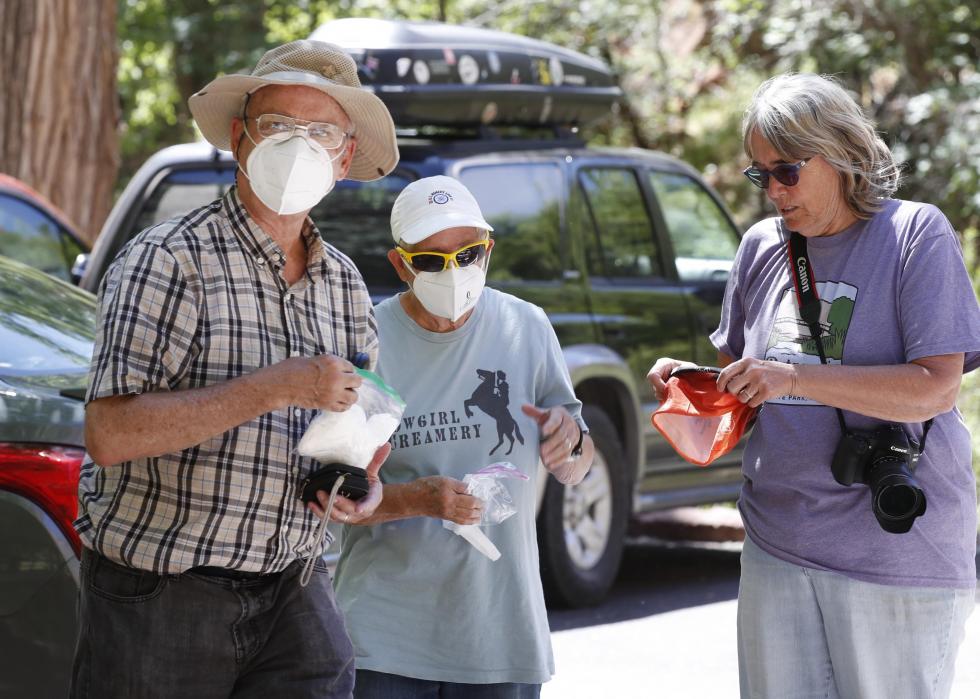
Utah
Salt Lake City instituted a mandate on masks on June 26; by July 21, COVID-19 cases were markedly down throughout the city. Throughout the state, health officials stand by the line that masks are highly recommended. They are not required, however. At a June 17 press conference, state epidemiologist Dr. Angela Dunn said that the state did not have any plans to change its mask policy.
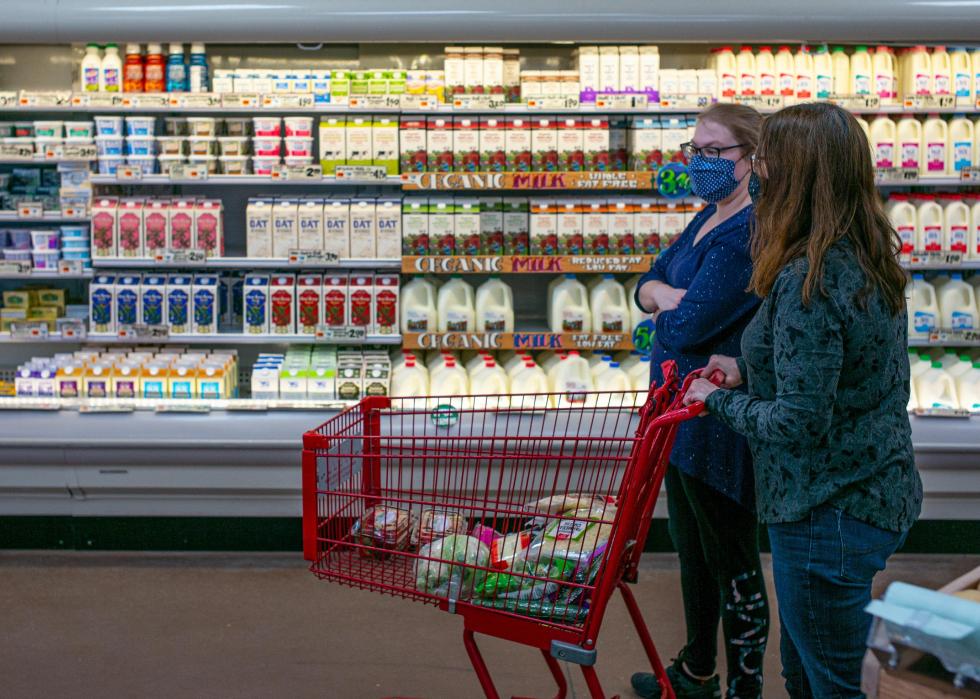
Vermont
For the majority of the public health emergency, Gov. Phil Scott's executive orders encouraged but did not require face masks. As of June 17, a few major municipalities began requiring them, including Burlington, Brattleboro, South Burlington, Montpelier, and Wilmington. Scott on July 21 said in a press conference that should case counts continue to rise, the state would consider enacting a mask mandate.
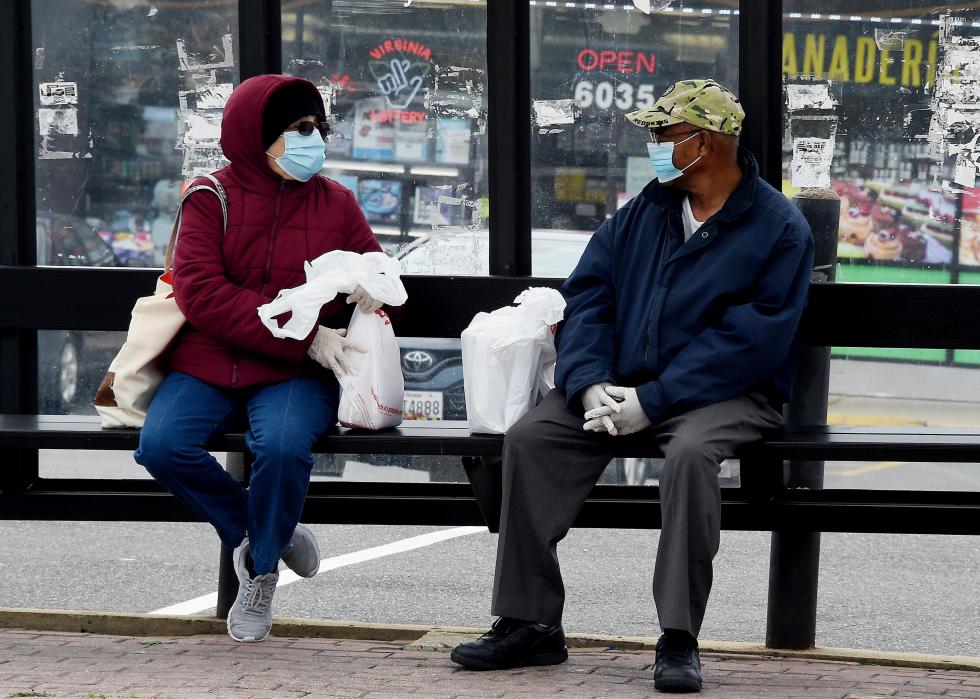
Virginia
Virginians as of May 26 were required to start covering their faces in public settings, per a mandate from Gov. Ralph Northam. Everyone 10 and older is required to wear face masks in certain public places, according to the ordinance.
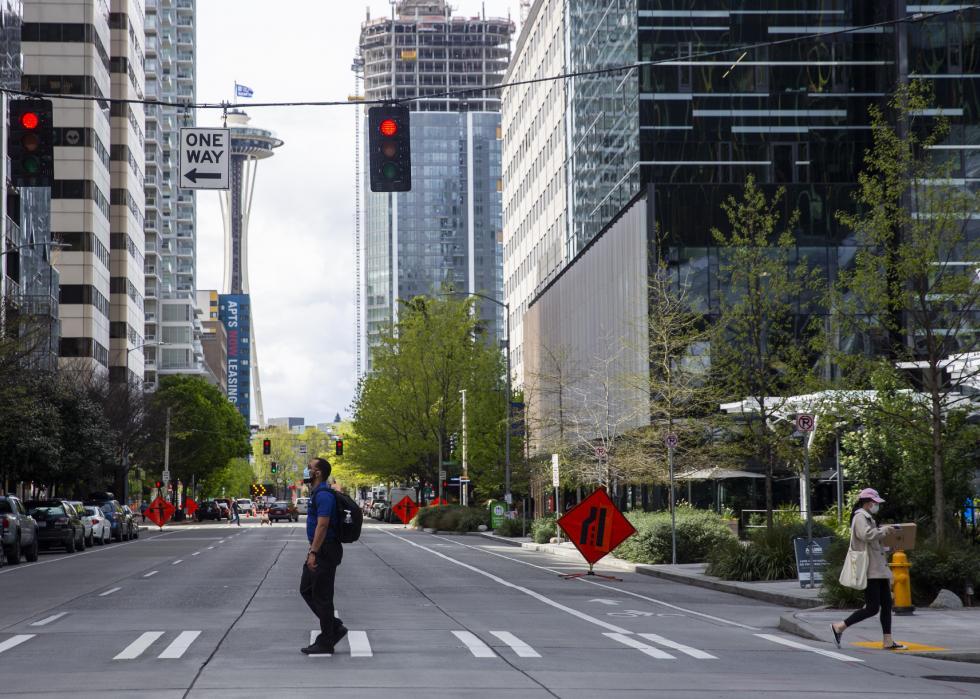
Washington
Gov. Jay Inslee issued a government mandate that people wear masks starting June 26 anytime they are out. The ruling came as case counts ballooned throughout Washington.
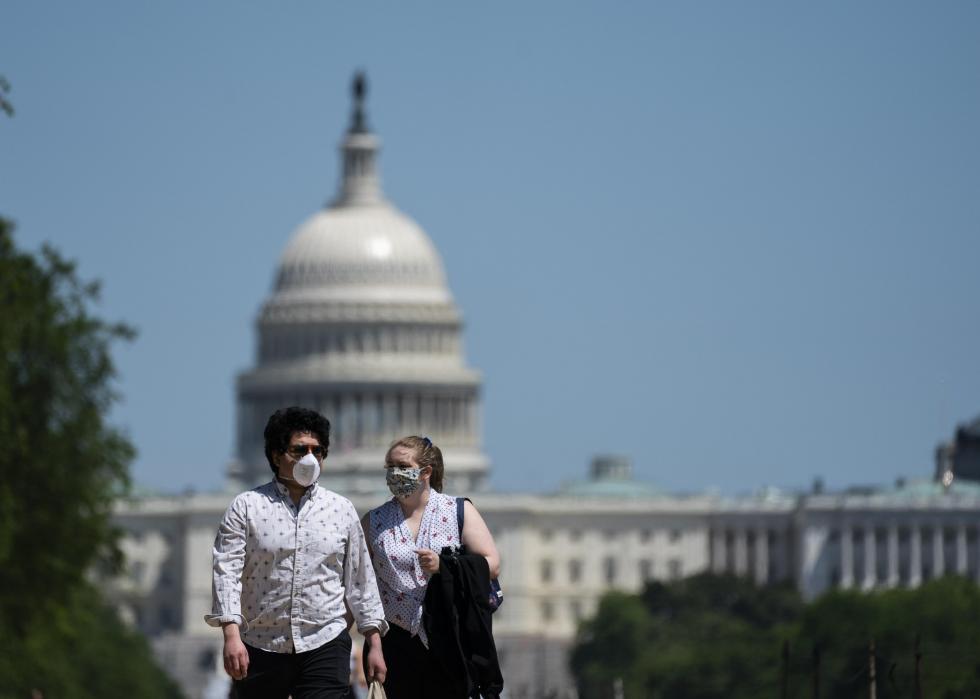
Washington D.C.
Mayor Muriel Bowser on May 16 made the use of face masks mandatory when traveling, conducting business, shopping, and picking up takeout in Washington, D.C. Masks are also required on public transportation if individuals cannot be six feet apart.
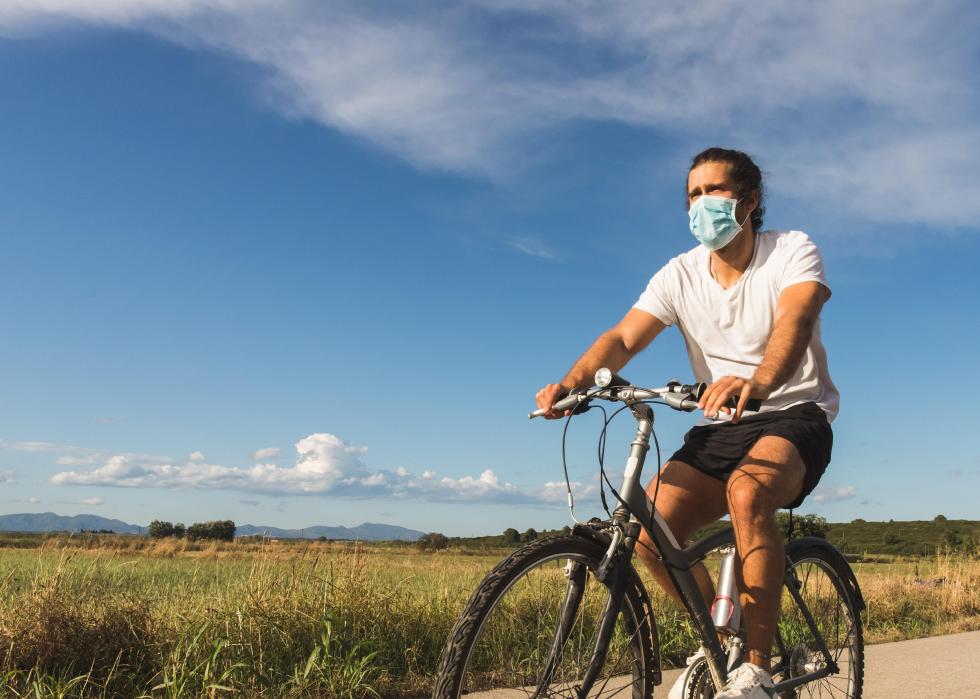
West Virginia
On July 6, West Virginia Governor Jim Justice announced an executive order making masks required indoors. All state residents nine years of age and older must wear masks in indoor public places when they cannot remain six feet apart. The requirement does not apply, however, when eating inside a restaurant, nor does it apply in outdoor spaces.
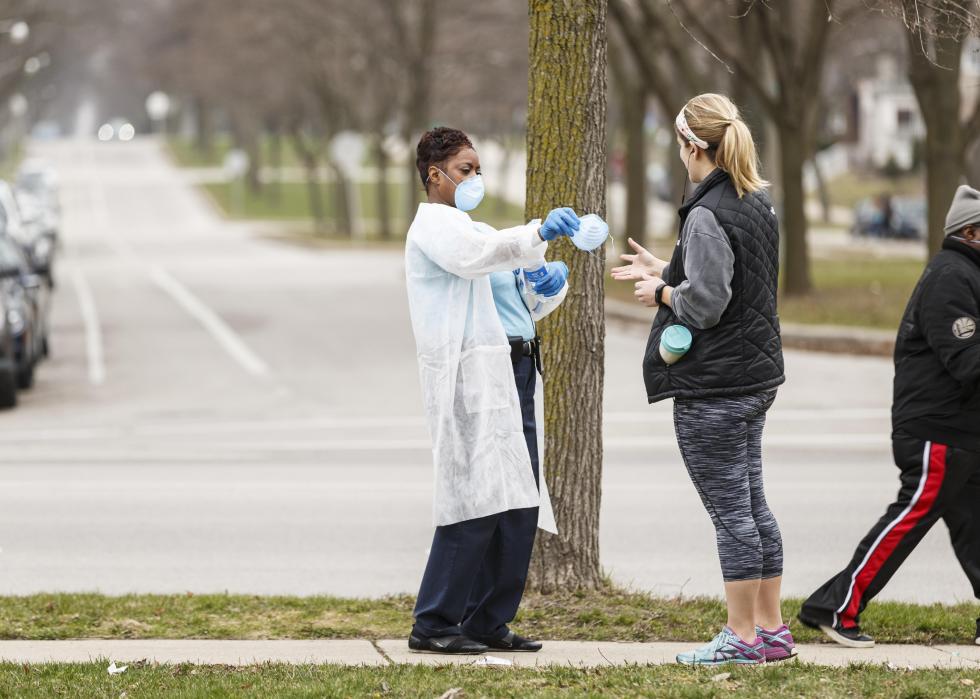
Wisconsin
Wisconsin is one of four states without any mask requirements. They still remain only a recommendation. But several counties and cities have issued mandates of their own; Milwaukee's policy, which requires face coverings in all indoor public spaces and outside when maintaining distance is impossible, went into effect on July 16.
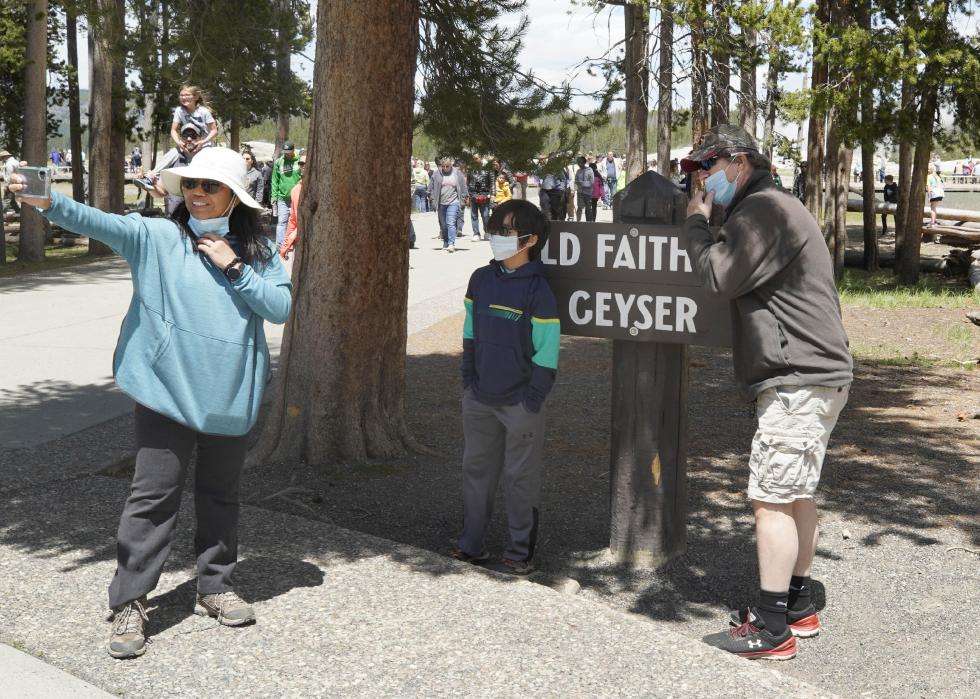
Wyoming
On April 6, the Wyoming Department of Health encouraged the use of face masks but stopped short of making it a statewide mandate. The state department echoed the CDC's recommendation but still called it a voluntary measure.
You may also like: 50 community resources to support Americans financially impacted by COVID-19



